

Everything You Need to Know About the Business Travel Tax Deduction
.jpeg)
Justin is an IRS Enrolled Agent, allowing him to represent taxpayers before the IRS. He loves helping freelancers and small business owners save on taxes. He is also an attorney and works part-time with the Keeper Tax team.
You don’t have to fly first class and stay at a fancy hotel to claim travel expense tax deductions. Conferences, worksite visits, and even a change of scenery can (sometimes) qualify as business travel.
What counts as business travel?
The IRS does have a few simple guidelines for determining what counts as business travel. Your trip has to be:
- Mostly business
- An “ordinary and necessary” expense
- Someplace far away from your “tax home”
What counts as "mostly business"?
The IRS will measure your time away in days. If you spend more days doing business activities than not, your trip is considered "mostly business". Your travel days are counted as work days.
Special rules for traveling abroad
If you are traveling abroad for business purposes, you trip counts as " entirely for business " as long as you spend less than 25% of your time on personal activities (like vacationing). Your travel days count as work days.
So say you you head off to Zurich for nine days. You've got a seven-day run of conference talks, client meetings, and the travel it takes to get you there. You then tack on two days skiing on the nearby slopes.
Good news: Your trip still counts as "entirely for business." That's because two out of nine days is less than 25%.
What is an “ordinary and necessary” expense?
“Ordinary and necessary” means that the trip:
- Makes sense given your industry, and
- Was taken for the purpose of carrying out business activities
If you have a choice between two conferences — one in your hometown, and one in London — the British one wouldn’t be an ordinary and necessary expense.
What is your tax home?
A taxpayer can deduct travel expenses anytime you are traveling away from home but depending on where you work the IRS definition of “home” can get complicated.
Your tax home is often — but not always — where you live with your family (what the IRS calls your "family home"). When it comes to defining it, there are two factors to consider:
- What's your main place of business, and
- How large is your tax home
What's your main place of business?
If your main place of business is somewhere other than your family home, your tax home will be the former — where you work, not where your family lives.
For example, say you:
- Live with your family in Chicago, but
- Work in Milwaukee during the week (where you stay in hotels and eat in restaurants)
Then your tax home is Milwaukee. That's your main place of business, even if you travel back to your family home every weekend.
How large is your tax home?
In most cases, your tax home is the entire city or general area where your main place of business is located.
The “entire city” is easy to define but “general area” gets a bit tricker. For example, if you live in a rural area, then your general area may span several counties during a regular work week.
Rules for business travel
Want to check if your trip is tax-deductible? Make sure it follows these rules set by the IRS.
1. Your trip should take you away from your home base
A good rule of thumb is 100 miles. That’s about a two hour drive, or any kind of plane ride. To be able to claim all the possible travel deductions, your trip should require you to sleep somewhere that isn’t your home.
2. You should be working regular hours
In general, that means eight hours a day of work-related activity.
It’s fine to take personal time in the evenings, and you can still take weekends off. But you can’t take a half-hour call from Disneyland and call it a business trip.
Here's an example. Let’s say you’re a real estate agent living in Chicago. You travel to an industry conference in Las Vegas. You go to the conference during the day, go out in the evenings, and then stay the weekend. That’s a business trip!
3. The trip should last less than a year
Once you’ve been somewhere for over a year, you’re essentially living there. However, traveling for six months at a time is fine!
For example, say you’re a freelancer on Upwork, living in Seattle. You go down to stay with your sister in San Diego for the winter to expand your client network, and you work regular hours while you’re there. That counts as business travel.
What about digital nomads?
With the rise of remote-first workplaces, many freelancers choose to take their work with them as they travel the globe. There are a couple of requirements these expats have to meet if they want to write off travel costs.
Requirement #1: A tax home
Digital nomads have to be able to claim a particular foreign city as a tax home if they want to write off any travel expenses. You don't have to be there all the time — but it should be your professional home base when you're abroad.
For example, say you've rent a room or a studio apartment in Prague for the year. You regularly call clients and finish projects from there. You still travel a lot, for both work and play. But Prague is your tax home, so you can write off travel expenses.
Requirement #2: Some work-related reason for traveling
As long as you've got a tax home and some work-related reason for traveling, these excursion count as business trips. Plausible reasons include meeting with local clients, or attending a local conference and then extending your stay.
However, if you’re a freelance software developer working from Thailand because you like the weather, that unfortunately doesn't count as business travel.
The travel expenses you can write off
As a rule of thumb, all travel-related expenses on a business trip are tax-deductible. You can also claim meals while traveling, but be careful with entertainment expenses (like going out for drinks!).
Here are some common travel-related write-offs you can take.
🛫 All transportation
Any transportation costs are a travel tax deduction. This includes traveling by airplane, train, bus, or car. Baggage fees are deductible, and so are Uber rides to and from the airport.
Just remember: if a client is comping your airfare, or if you booked your ticket with frequent flier miles, then it isn't deductible since your cost was $0.
If you rent a car to go on a business trip, that rental is tax-deductible. If you drive your own vehicle, you can either take actual costs or use the standard mileage deduction. There's more info on that in our guide to deducting car expenses .
Hotels, motels, Airbnb stays, sublets on Craigslist, even reimbursing a friend for crashing on their couch: all of these are tax-deductible lodging expenses.
🥡 Meals while traveling
If your trip has you staying overnight — or even crashing somewhere for a few hours before you can head back — you can write off food expenses. Grabbing a burger alone or a coffee at your airport terminal counts! Even groceries and takeout are tax-deductible.
One important thing to keep in mind: You can usually deduct 50% of your meal costs. For 2021 and 2022, meals you get at restaurants are 100% tax-deductible. Go to the grocery store, though, and you’re limited to the usual 50%.
{upsell_block}
🌐 Wi-Fi and communications
Wi-Fi — on a plane or at your hotel — is completely deductible when you’re traveling for work. This also goes for other communication expenses, like hotspots and international calls.
If you need to ship things as part of your trip — think conference booth materials or extra clothes — those expenses are also tax-deductible.
👔 Dry cleaning
Need to look your best on the trip? You can write off related expenses, like laundry charges.
{write_off_block}
Travel expenses you can't deduct
Some travel costs may seem like no-brainers, but they're not actually tax-deductible. Here are a couple of common ones to watch our for.
The cost of bringing your child or spouse
If you bring your child or spouse on a business trip, your travel expense deductions get a little trickier. In general, the cost of bring other people on a business trip is considered personal expense — which means it's not deductible.
You can only deduct travel expenses if your child or spouse:
- Is an employee,
- Has a bona fide business purpose for traveling with you, and
- Would otherwise be allowed to deduct the travel expense on their own
Some hotel bill charges
Staying in a hotel may be required for travel purposes. That's why the room charge and taxes are deductible.
Some additional charges, though, won't qualify. Here are some examples of fees that aren't tax-deductible:
- Gym or fitness center fees
- Movie rental fees
- Game rental fees
{email_capture}
Where to claim travel expenses when filing your taxes
If you are self-employed, you will claim all your income tax deduction on the Schedule C. This is part of the Form 1040 that self-employed people complete ever year.
What happens if your business deductions are disallowed?
If the IRS challenges your business deduction and they are disallowed, there are potential penalties. This can happen if:
- The deduction was not legitimate and shouldn't have been claimed in the first place, or
- The deduction was legitimate, but you don't have the documentation to support it
When does the penalty come into play?
The 20% penalty is not automatic. It only applies if it allowed you to pay substantially less taxes than you normally would. In most cases, the IRS considers “substantially less” to mean you paid at least 10% less.
In practice, you would only reach this 10% threshold if the IRS disqualified a significant number of your travel deductions.
How much is the penalty?
The penalty is normally 20% of the difference between what you should have paid and what you actually paid. You also have to make up the original difference.
In total, this means you will be paying 120% of your original tax obligation: your original obligation, plus 20% penalty.
.jpeg)
Justin W. Jones, EA, JD

Over 1M freelancers trust Keeper with their taxes
Keeper is the top-rated all-in-one business expense tracker, tax filing service, and personal accountant.

Sign up for Tax University
Get the tax info they should have taught us in school

Expense tracking has never been easier
What tax write-offs can I claim?
At Keeper, we’re on a mission to help people overcome the complexity of taxes. We’ve provided this information for educational purposes, and it does not constitute tax, legal, or accounting advice. If you would like a tax expert to clarify it for you, feel free to sign up for Keeper. You may also email [email protected] with your questions.
Voted best tax app for freelancers
More Articles to Read
Free Tax Tools
1099 Tax Calculator
- Quarterly Tax Calculator
How Much Should I Set Aside for 1099 Taxes?
Keeper users have found write-offs worth
- Affiliate program
- Partnership program
- Tax bill calculator
- Tax rate calculator
- Tax deduction finder
- Quarterly tax calculator
- Ask an accountant
- Terms of Service
- Privacy Policy
- Affiliate Program
- Partnership Program
- Tax Bill Calculator
- Tax Rate Calculator
- Tax Deduction Finder
- Ask an Accountant
- Search Search Please fill out this field.
What Are Travel Expenses?
Understanding travel expenses, the bottom line.
- Deductions & Credits
- Tax Deductions
Travel Expenses Definition and Tax Deductible Categories
Michelle P. Scott is a New York attorney with extensive experience in tax, corporate, financial, and nonprofit law, and public policy. As General Counsel, private practitioner, and Congressional counsel, she has advised financial institutions, businesses, charities, individuals, and public officials, and written and lectured extensively.
:max_bytes(150000):strip_icc():format(webp)/MichellePScott-9-30-2020.resized-ef960b87116444b7b3cdf25267a4b230.jpg)
For tax purposes, travel expenses are costs associated with traveling to conduct business-related activities. Reasonable travel expenses can generally be deducted from taxable income by a company when its employees incur costs while traveling away from home specifically for business. That business can include conferences or meetings.
Key Takeaways
- Travel expenses are tax-deductible only if they were incurred to conduct business-related activities.
- Only ordinary and necessary travel expenses are deductible; expenses that are deemed unreasonable, lavish, or extravagant are not deductible.
- The IRS considers employees to be traveling if their business obligations require them to be away from their "tax home” substantially longer than an ordinary day's work.
- Examples of deductible travel expenses include airfare, lodging, transportation services, meals and tips, and the use of communications devices.
Travel expenses incurred while on an indefinite work assignment that lasts more than one year are not deductible for tax purposes.
The Internal Revenue Service (IRS) considers employees to be traveling if their business obligations require them to be away from their "tax home" (the area where their main place of business is located) for substantially longer than an ordinary workday, and they need to get sleep or rest to meet the demands of their work while away.
Well-organized records—such as receipts, canceled checks, and other documents that support a deduction—can help you get reimbursed by your employer and can help your employer prepare tax returns. Examples of travel expenses can include:
- Airfare and lodging for the express purpose of conducting business away from home
- Transportation services such as taxis, buses, or trains to the airport or to and around the travel destination
- The cost of meals and tips, dry cleaning service for clothes, and the cost of business calls during business travel
- The cost of computer rental and other communications devices while on the business trip
Travel expenses do not include regular commuting costs.
Individual wage earners can no longer deduct unreimbursed business expenses. That deduction was one of many eliminated by the Tax Cuts and Jobs Act of 2017.
While many travel expenses can be deducted by businesses, those that are deemed unreasonable, lavish, or extravagant, or expenditures for personal purposes, may be excluded.
Types of Travel Expenses
Types of travel expenses can include:
- Personal vehicle expenses
- Taxi or rideshare expenses
- Airfare, train fare, or ferry fees
- Laundry and dry cleaning
- Business meals
- Business calls
- Shipment costs for work-related materials
- Some equipment rentals, such as computers or trailers
The use of a personal vehicle in conjunction with a business trip, including actual mileage, tolls, and parking fees, can be included as a travel expense. The cost of using rental vehicles can also be counted as a travel expense, though only for the business-use portion of the trip. For instance, if in the course of a business trip, you visited a family member or acquaintance, the cost of driving from the hotel to visit them would not qualify for travel expense deductions .
The IRS allows other types of ordinary and necessary expenses to be treated as related to business travel for deduction purposes. Such expenses can include transport to and from a business meal, the hiring of a public stenographer, payment for computer rental fees related to the trip, and the shipment of luggage and display materials used for business presentations.
Travel expenses can also include operating and maintaining a house trailer as part of the business trip.
Can I Deduct My Business Travel Expenses?
Business travel expenses can no longer be deducted by individuals.
If you are self-employed or operate your own business, you can deduct those "ordinary and necessary" business expenses from your return.
If you work for a company and are reimbursed for the costs of your business travel , your employer will deduct those costs at tax time.
Do I Need Receipts for Travel Expenses?
Yes. Whether you're an employee claiming reimbursement from an employer or a business owner claiming a tax deduction, you need to prepare to prove your expenditures. Keep a running log of your expenses and file away the receipts as backup.
What Are Reasonable Travel Expenses?
Reasonable travel expenses, from the viewpoint of an employer or the IRS, would include transportation to and from the business destination, accommodation costs, and meal costs. Certainly, business supplies and equipment necessary to do the job away from home are reasonable. Taxis or Ubers taken during the business trip are reasonable.
Unreasonable is a judgment call. The boss or the IRS might well frown upon a bill for a hotel suite instead of a room, or a sports car rental instead of a sedan.
Individual taxpayers need no longer fret over recordkeeping for unreimbursed travel expenses. They're no longer tax deductible by individuals, at least until 2025 when the provisions in the latest tax reform package are due to expire or be extended.
If you are self-employed or own your own business, you should keep records of your business travel expenses so that you can deduct them properly.
Internal Revenue Service. " Topic No. 511, Business Travel Expenses ."
Internal Revenue Service. " Publication 463, Travel, Gift, and Car Expenses ," Page 13.
Internal Revenue Service. " Publication 5307, Tax Reform Basics for Individuals and Families ," Page 7.
Internal Revenue Service. " Publication 463, Travel, Gift, and Car Expenses ," Pages 6-7, 13-14.
Internal Revenue Service. " Publication 463, Travel, Gift, and Car Expenses ," Page 4.
Internal Revenue Service. " Publication 5307, Tax Reform Basics for Individuals and Families ," Pages 5, 7.
:max_bytes(150000):strip_icc():format(webp)/HeroImagesGettyImages-65a9475bbae746848eee99e8fff09f2d.jpg)
- Terms of Service
- Editorial Policy
- Privacy Policy
- Your Privacy Choices

How to Deduct Travel Expenses (with Examples)
Reviewed by
November 3, 2022
This article is Tax Professional approved
Good news: most of the regular costs of business travel are tax deductible.
Even better news: as long as the trip is primarily for business, you can tack on a few vacation days and still deduct the trip from your taxes (in good conscience).
I am the text that will be copied.
Even though we advise against exploiting this deduction, we do want you to understand how to leverage the process to save on your taxes, and get some R&R while you’re at it.
Follow the steps in this guide to exactly what qualifies as a travel expense, and how to not cross the line.
The travel needs to qualify as a “business trip”
Unfortunately, you can’t just jump on the next plane to the Bahamas and write the trip off as one giant business expense. To write off travel expenses, the IRS requires that the primary purpose of the trip needs to be for business purposes.
Here’s how to make sure your travel qualifies as a business trip.
1. You need to leave your tax home
Your tax home is the locale where your business is based. Traveling for work isn’t technically a “business trip” until you leave your tax home for longer than a normal work day, with the intention of doing business in another location.
2. Your trip must consist “mostly” of business
The IRS measures your time away in days. For a getaway to qualify as a business trip, you need to spend the majority of your trip doing business.
For example, say you go away for a week (seven days). You spend five days meeting with clients, and a couple of days lounging on the beach. That qualifies as business trip.
But if you spend three days meeting with clients, and four days on the beach? That’s a vacation. Luckily, the days that you travel to and from your location are counted as work days.
3. The trip needs to be an “ordinary and necessary” expense
“Ordinary and necessary ” is a term used by the IRS to designate expenses that are “ordinary” for a business, given the industry it’s in, and “necessary” for the sake of carrying out business activities.
If there are two virtually identical conferences taking place—one in Honolulu, the other in your hometown—you can’t write off an all-expense-paid trip to Hawaii.
Likewise, if you need to rent a car to get around, you’ll have trouble writing off the cost of a Range Rover if a Toyota Camry will get you there just as fast.
What qualifies as “ordinary and necessary” can seem like a gray area at times, and you may be tempted to fudge it. Our advice: err on the side of caution. if the IRS chooses to investigate and discovers you’ve claimed an expense that wasn’t necessary for conducting business, you could face serious penalties .
4. You need to plan the trip in advance
You can’t show up at Universal Studios , hand out business cards to everyone you meet in line for the roller coaster, call it “networking,” and deduct the cost of the trip from your taxes. A business trip needs to be planned in advance.
Before your trip, plan where you’ll be each day, when, and outline who you’ll spend it with. Document your plans in writing before you leave. If possible, email a copy to someone so it gets a timestamp. This helps prove that there was professional intent behind your trip.
The rules are different when you travel outside the United States
Business travel rules are slightly relaxed when you travel abroad.
If you travel outside the USA for more than a week (seven consecutive days, not counting the day you depart the United States):
You must spend at least 75% of your time outside of the country conducting business for the entire getaway to qualify as a business trip.
If you travel outside the USA for more than a week, but spend less than 75% of your time doing business, you can still deduct travel costs proportional to how much time you do spend working during the trip.
For example, say you go on an eight-day international trip. If you spend at least six days conducting business, you can deduct the entire cost of the trip as a business expense—because 6 is equivalent to 75% of your time away, which, remember, is the minimum you must spend on business in order for the entire trip to qualify as a deductible business expense.
But if you only spend four days out of the eight-day trip conducting business—or just 50% of your time away—you would only be able to deduct 50% of the cost of your travel expenses, because the trip no longer qualifies as entirely for business.
List of travel expenses
Here are some examples of business travel deductions you can claim:
- Plane, train, and bus tickets between your home and your business destination
- Baggage fees
- Laundry and dry cleaning during your trip
- Rental car costs
- Hotel and Airbnb costs
- 50% of eligible business meals
- 50% of meals while traveling to and from your destination
On a business trip, you can deduct 100% of the cost of travel to your destination, whether that’s a plane, train, or bus ticket. If you rent a car to get there, and to get around, that cost is deductible, too.
The cost of your lodging is tax deductible. You can also potentially deduct the cost of lodging on the days when you’re not conducting business, but it depends on how you schedule your trip. The trick is to wedge “vacation days” in between work days.
Here’s a sample itinerary to explain how this works:
Thursday: Fly to Durham, NC. Friday: Meet with clients. Saturday: Intermediate line dancing lessons. Sunday: Advanced line dancing lessons. Monday: Meet with clients. Tuesday: Fly home.
Thursday and Tuesday are travel days (remember: travel days on business trips count as work days). And Friday and Monday, you’ll be conducting business.
It wouldn’t make sense to fly home for the weekend (your non-work days), only to fly back into Durham for your business meetings on Monday morning.
So, since you’re technically staying in Durham on Saturday and Sunday, between the days when you’ll be conducting business, the total cost of your lodging on the trip is tax deductible, even if you aren’t actually doing any work on the weekend.
It’s not your fault that your client meetings are happening in Durham—the unofficial line dancing capital of America .
Meals and entertainment during your stay
Even on a business trip, you can only deduct a portion of the meal and entertainment expenses that specifically facilitate business. So, if you’re in Louisiana closing a deal over some alligator nuggets, you can write off 50% of the bill.
Just make sure you make a note on the receipt, or in your expense-tracking app , about the nature of the meeting you conducted—who you met with, when, and what you discussed.
On the other hand, if you’re sampling the local cuisine and there’s no clear business justification for doing so, you’ll have to pay for the meal out of your own pocket.
Meals and entertainment while you travel
While you are traveling to the destination where you’re doing business, the meals you eat along the way can be deducted by 50% as business expenses.
This could be your chance to sample local delicacies and write them off on your tax return. Just make sure your tastes aren’t too extravagant. Just like any deductible business expense, the meals must remain “ordinary and necessary” for conducting business.
How Bench can help
Surprised at the kinds of expenses that are tax-deductible? Travel expenses are just one of many unexpected deductible costs that can reduce your tax bill. But with messy or incomplete financials, you can miss these tax saving expenses and end up with a bigger bill than necessary.
Enter Bench, America’s largest bookkeeping service. With a Bench subscription, your team of bookkeepers imports every transaction from your bank, credit cards, and merchant processors, accurately categorizing each and reviewing for hidden tax deductions. We provide you with complete and up-to-date bookkeeping, guaranteeing that you won’t miss a single opportunity to save.
Want to talk taxes with a professional? With a premium subscription, you get access to unlimited, on-demand consultations with our tax professionals. They can help you identify deductions, find unexpected opportunities for savings, and ensure you’re paying the smallest possible tax bill. Learn more .
Bringing friends & family on a business trip
Don’t feel like spending the vacation portion of your business trip all alone? While you can’t directly deduct the expense of bringing friends and family on business trips, some costs can be offset indirectly.
Driving to your destination
Have three or four empty seats in your car? Feel free to fill them. As long as you’re traveling for business, and renting a vehicle is a “necessary and ordinary” expense, you can still deduct your business mileage or car rental costs even when others join you for the ride.
One exception: If you incur extra mileage or “unnecessary” rental costs because you bring your family along for the ride, the expense is no longer deductible because it isn’t “necessary or ordinary.”
For example, let’s say you had to rent an extra large van to bring your children on a business trip. If you wouldn’t have needed to rent the same vehicle to travel alone, the expense of the extra large van no longer qualifies as a business deduction.
Renting a place to stay
Similar to the driving expense, you can only deduct lodging equivalent to what you would use if you were travelling alone.
However, there is some flexibility. If you pay for lodging to accommodate you and your family, you can deduct the portion of lodging costs that is equivalent to what you would pay only for yourself .
For example, let’s say a hotel room for one person costs $100, but a hotel room that can accommodate your family costs $150. You can rent the $150 option and deduct $100 of the cost as a business expense—because $100 is how much you’d be paying if you were staying there alone.
This deduction has the potential to save you a lot of money on accommodation for your family. Just make sure you hold on to receipts and records that state the prices of different rooms, in case you need to justify the expense to the IRS
Heads up. When it comes to AirBnB, the lines get blurry. It’s easy to compare the cost of a hotel room with one bed to a hotel room with two beds. But when you’re comparing significantly different lodgings, with different owners—a pool house versus a condo, for example—it becomes hard to justify deductions. Sticking to “traditional” lodging like hotels and motels may help you avoid scrutiny during an audit. And when in doubt: ask your tax advisor.
So your trip is technically a vacation? You can still claim any business-related expenses
The moment your getaway crosses the line from “business trip” to “vacation” (e.g. you spend more days toasting your buns than closing deals) you can no longer deduct business travel expenses.
Generally, a “vacation” is:
- A trip where you don’t spend the majority of your days doing business
- A business trip you can’t back up with correct documentation
However, you can still deduct regular business-related expenses if you happen to conduct business while you’re on vacay.
For example, say you visit Portland for fun, and one of your clients also lives in that city. You have a lunch meeting with your client while you’re in town. Because the lunch is business related, you can write off 50% of the cost of the meal, the same way you would any other business meal and entertainment expense . Just make sure you keep the receipt.
Meanwhile, the other “vacation” related expenses that made it possible to meet with this client in person—plane tickets to Portland, vehicle rental so you could drive around the city—cannot be deducted; the trip is still a vacation.
If your business travel is with your own vehicle
There are two ways to deduct business travel expenses when you’re using your own vehicle.
- Actual expenses method
- Standard mileage rate method
Actual expenses is where you total up the actual cost associated with using your vehicle (gas, insurance, new tires, parking fees, parking tickets while visiting a client etc.) and multiply it by the percentage of time you used it for business. If it was 50% for business during the tax year, you’d multiply your total car costs by 50%, and that’d be the amount you deduct.
Standard mileage is where you keep track of the business miles you drove during the tax year, and then you claim the standard mileage rate .
The cost of breaking the rules
Don’t bother trying to claim a business trip unless you have the paperwork to back it up. Use an app like Expensify to track business expenditure (especially when you travel for work) and master the art of small business recordkeeping .
If you claim eligible write offs and maintain proper documentation, you should have all of the records you need to justify your deductions during a tax audit.
Speaking of which, if your business is flagged to be audited, the IRS will make it a goal to notify you by mail as soon as possible after your filing. Usually, this is within two years of the date for which you’ve filed. However, the IRS reserves the right to go as far back as six years.
Tax penalties for disallowed business expense deductions
If you’re caught claiming a deduction you don’t qualify for, which helped you pay substantially less income tax than you should have, you’ll be penalized. In this case, “substantially less” means the equivalent of a difference of 10% of what you should have paid, or $5,000—whichever amount is higher.
The penalty is typically 20% of the difference between what you should have paid and what you actually paid in income tax. This is on top of making up the difference.
Ultimately, you’re paying back 120% of what you cheated off the IRS.
If you’re slightly confused at this point, don’t stress. Here’s an example to show you how this works:
Suppose you would normally pay $30,000 income tax. But because of a deduction you claimed, you only pay $29,000 income tax.
If the IRS determines that the deduction you claimed is illegitimate, you’ll have to pay the IRS $1200. That’s $1000 to make up the difference, and $200 for the penalty.
Form 8275 can help you avoid tax penalties
If you think a tax deduction may be challenged by the IRS, there’s a way you can file it while avoiding any chance of being penalized.
File Form 8275 along with your tax return. This form gives you the chance to highlight and explain the deduction in detail.
In the event you’re audited and the deduction you’ve listed on Form 8275 turns out to be illegitimate, you’ll still have to pay the difference to make up for what you should have paid in income tax—but you’ll be saved the 20% penalty.
Unfortunately, filing Form 8275 doesn’t reduce your chances of being audited.
Where to claim travel expenses
If you’re self-employed, you’ll claim travel expenses on Schedule C , which is part of Form 1040.
When it comes to taking advantage of the tax write-offs we’ve discussed in this article—or any tax write-offs, for that matter—the support of a professional bookkeeping team and a trusted CPA is essential.
Accurate financial statements will help you understand cash flow and track deductible expenses. And beyond filing your taxes, a CPA can spot deductions you may have overlooked, and represent you during a tax audit.
Learn more about how to find, hire, and work with an accountant . And when you’re ready to outsource your bookkeeping, try Bench .
Join over 140,000 fellow entrepreneurs who receive expert advice for their small business finances
Get a regular dose of educational guides and resources curated from the experts at Bench to help you confidently make the right decisions to grow your business. No spam. Unsubscribe at any time.

- Credits and deductions
- Business expenses
Can I deduct travel expenses?
By turbotax • updated 7 months ago.
If you’re self-employed or own a business , you can deduct work-related travel expenses, including vehicles, airfare, lodging, and meals. The expenses must be ordinary and necessary.
For vehicle expenses, you can choose between the standard mileage rate or the actual cost method where you track what you paid for gas and maintenance.
You can generally only claim 50% of the cost of your meals while on business-related travel away from your tax home, provided your trip requires an overnight stay. You can also deduct 50% of the cost of meals for entertaining clients (regardless of location), but due to the Tax Cuts and Jobs Act of 2017 (TCJA), you can no longer deduct entertainment expenses in tax years 2018 through 2025. In 2021 and 2022, the law allows a deduction for 100% of your cost of food and beverages that are provided by a restaurant, instead of the usual 50% deduction.
On the other hand, employees can no longer deduct out-of-pocket travel costs in tax years 2018 through 2025 per the TCJA (this does not apply to Armed Forces reservists, qualified performing artists, fee-basis state or local government officials, and employees with impairment-related work expenses). Prior to the tax rule change, employees could claim 50% of the cost of unreimbursed meals while on business-related travel away from their tax home if the trip required an overnight stay, as well as other unreimbursed job-related travel costs. These expenses were handled as a 2% miscellaneous itemized deduction.
You must sign in to vote.
Found what you need?
Already have an account? Sign In

More like this
- Can I deduct medical mileage and travel? by TurboTax • 2058 • Updated December 13, 2023
- Can I deduct my moving expenses? by TurboTax • 4910 • Updated January 08, 2024
- Can I deduct rent? by TurboTax • 8790 • Updated December 09, 2023
- Can I deduct mileage? by TurboTax • 7892 • Updated April 04, 2024
- Can employees deduct commuting expenses like gas, mileage, fares, and tolls? by TurboTax • 3894 • Updated 1 day ago

- Search Search Please fill out this field.
- Building Your Business
- Business Taxes
7 Rules You Should Know About Deducting Business Travel Expenses
:max_bytes(150000):strip_icc():format(webp)/DanielRathburn-a16946b87e45469aaae5b4998db2397a.jpeg)
- What Is Your "Tax Home"?
Charges on Your Hotel Bill
The 50% rule for meals, the cost of bringing a spouse, friend or employee.
- Using Per Diems To Calculate Employee Travel Costs
Combined Business/Personal Trips
International business travel.
- The Cost of a Cruise (Within Limits)
Frequently Asked Questions (FAQs)
Helde Benser / Getty Images
The IRS has a specific definition for business travel when it comes to determining whether these expenses are tax deductible. The agency says business travel is travel that takes you away from your tax home and is "substantially longer than an ordinary day's work." It requires that you sleep or rest while you're away from home, and that you do so. The travel must be "temporary." This means it can't last a year or more.
Key Takeaways
- You can deduct expenses that take you away from your tax home for a period of time that would require you to spend the night.
- Your tax home is the city or area where your regular place of business is located.
- You’re limited to 50% of the cost of your meals.
- Your trip must be entirely business-related for costs to be deductible, but special rules apply if you travel outside the U.S.
What Is Your "Tax Home"?
Your tax home is a concept set by the IRS to help determine whether a trip is tax deductible. It's defined by the IRS as the entire city or general area where your regular place of business is located. It's not necessarily the area where you live.
Your tax home can be used to determine whether your business travel expenses are deductible after you've determined where it's located. You can probably count your expenses during travel as business deductions if you have to leave your tax home overnight or if you otherwise need time to rest and sleep while you're away.
Check with a tax professional to make sure you're accurately identifying the location of your tax home.
Charges for your room and associated tax are deductible, as are laundry expenses and charges for phone calls or for use of a fax machine. Tips are deductible as well. But additional personal charges, such as gym fees or fees for movies or games aren't deductible.
You can deduct the cost of meals while you're traveling, but entertainment expenses are no longer deductible and you can't deduct "lavish or extravagant" meals.
Meal costs are deductible at 50%. The 50% limit also applies to taxes and tips. You can use either your actual costs or a standard meal allowance to take a meal cost deduction, as long as it doesn't exceed the 50% limit.
The cost of bringing a spouse, child, or anyone else along on a business trip is considered a personal expense and isn't deductible. But you may be able to deduct travel expenses for the individual if:
- The person is an employee
- They have a bona fide business purpose for traveling with you
- They would otherwise be allowed to deduct travel expenses
You may be able to deduct the cost of a companion's travel if you can prove that the other person is employed by the business and is performing substantial business-related tasks while on the trip. This may include taking minutes at meetings or meeting with business clients.
Using Per Diems To Calculate Employee Travel Costs
The term "per diem" means "per day." Per diems are amounts that are considered reasonable for daily meals and miscellaneous expenses while traveling.
Per diem rates are set for U.S. and overseas travel, and the rates differ depending on the area. They're higher in larger U.S. cities than for sections of the country outside larger metropolitan areas. Companies can set their own per diem rates, but most businesses use the rates set by the U.S. government.
Per diem reimbursements aren't taxable unless they're greater than the maximum rate set by the General Service Administration. The excess is taxable to the employee.
If you don't spend all your time on business activities during an international trip, you can only deduct the business portion of getting to and from the destination. You must allocate costs between business and personal activities.
Your trip must be entirely business-related for you to take deductions for travel costs if you remain in the U.S., but some "incidental" personal time is okay. It would be incidental to the main purpose of your trip if you travel to Dallas for business and you spend an evening with family in the area while you're there.
But attempting to turn a personal trip into a business trip won't work unless the trip is substantially for business purposes. The IRS indicates that “the scheduling of incidental business activities during a trip, such as viewing videotapes or attending lectures dealing with general subjects, will not change what is really a vacation into a business trip."
The rules are different if part or all of your trip takes you outside the U.S. Your international travel may be considered business-related if you were outside the U.S. for more than a week and less than 25% of the time was spent on personal activities.
You can deduct the costs of your entire trip if it takes you outside the U.S. and you spend the entire time on business activities, but you must have "substantial control" over the itinerary. An employee traveling with you wouldn't have control over the trip, but you would as the business owner would.
The trip may be considered entirely for business if you spend less than 25% of the time on personal activities if your trip takes you outside the U.S. for more than a week.
You can only deduct the business portion of getting to and from the destination if you don't spend all your time on business activities during an international trip. You must allocate costs between your business and personal activities.
The Cost of a Cruise (Within Limits)
The cost of a cruise may be deductible up to the specified limit determined by the IRS, which is $2,000 per year as of 2022. You must be able to show that the cruise was directly related to a business event, such as a business meeting or board of directors meeting.
The IRS imposes specific additional strict requirements for deducting cruise travel as a business expense.
How do you write off business travel expenses?
Business travel expenses are entered on Schedule C if you're self-employed . The schedule is filed along with your Form 1040 tax return. It lists all your business income, then you can subtract the cost of your business travel and other business deductions you qualify for to arrive at your taxable income.
What are standard business travel expenses?
Standard business travel expenses include lodging, food, transportation costs , shipping of baggage and/or work items, laundry and dry cleaning, communication costs, and tips. But numerous rules apply so check with a tax professional before you claim them.
The Bottom Line
These tax deduction regulations are complicated, and there are many qualifications and exceptions. Consult with your tax and legal professionals before taking actions that could affect your business.
IRS. " Topic No. 511: Business Travel Expenses ."
IRS. " Publication 463 (2021), Travel, Gift, and Car Expenses ."
IRS. " Here’s What Taxpayers Need To Know About Business-Related Travel Deductions ."
How to find deductions for travel expenses
With more consultants and business travelers hitting the road for business travel, it's time for a brush-up on what expenses are eligible for tax deduction while they're away. If you're unsure about what qualifies, read on.
Find out more about Business Taxes

by Grace L. Williams
Grace L. Williams is a journalist. Her areas of expertise include small business, career, personal finance, and inve...
Read more...
Updated on: October 27, 2023 · 15 min read
Key takeaways
What is business travel or a business trip, what is a business-related travel expense, what business travel expenses are tax deductible, are there other tax deductions for travel expenses, tracking expenses on your business trip, importance of documentation, combining business and personal travel, special considerations for self-employed individuals, getting help with tax deductions for travel expenses, frequently asked questions.
Business travel is back after the pandemic, and with that increase comes the age-old question every business traveler must ask at least once: "What can I deduct as a business expense while I'm on the road?"
You've likely heard the term "write-off" somewhere and may have used it somewhere within your business circles. But what exactly is it? You might wonder if you can book first-class travel or five-star lodging and eat in fancy dining establishments and then submit them as business write-offs. The short, overarching rule for those specifics is no, you probably cannot, but there is more to eligible business travel expenses than that.

So before you book travel arrangements on your credit card (hopefully a designated business credit card), read on for more information about making expensing your business travel less stressful.
- Understand IRS guidelines for deductible travel expenses to maximize tax savings.
- Proper documentation is essential for claiming deductions, including meals and entertainment, with a clear business justification.
- Utilize tax professionals and leverage technology to ensure accurate deductions, compliance with laws, and maximum savings on travel expense deductions.
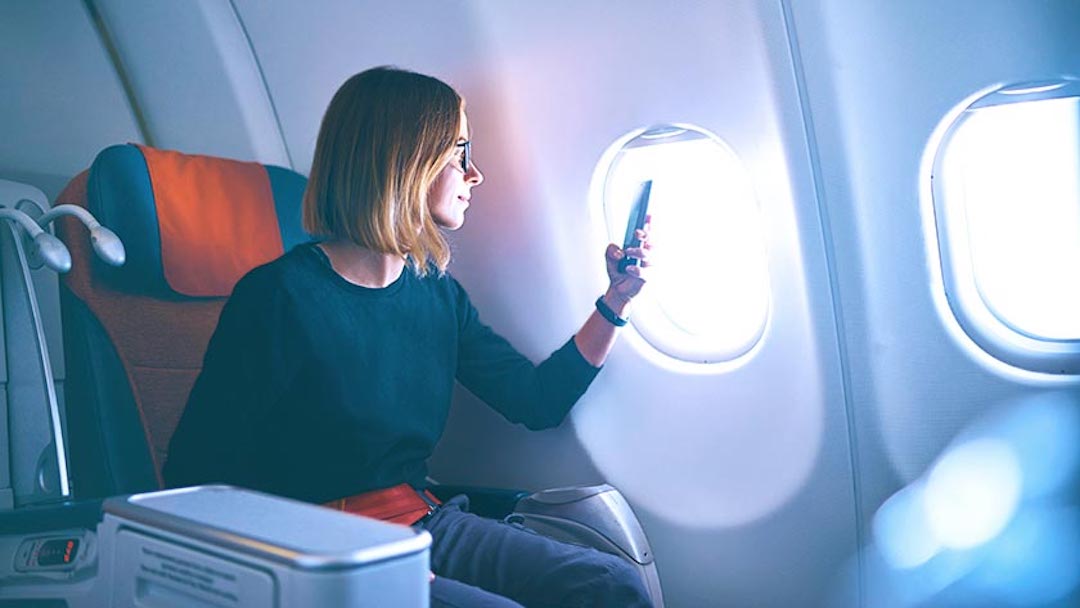
Simply put, business travel or a business trip is defined as any travel conducted that is business-related. To be considered eligible as a business trip, the travel itself must meet the following criteria:
- The trip must be conducted for legitimate business purposes, not as leisure time, vacation, or personal purposes.
- The trip must occur outside the bounds of a regular commute to and from work (or the main place of business) and home.
If the trip meets these criteria, it falls under the category of a business trip. It also means that you can deduct travel expenses whether you are a business owner sending an employee on your behalf or a self-employed individual.
To better understand business-related travel expenses, it's a good idea to look at overall business expenses. A business expense is incurred as part of the regular day-to-day operations of your employer (or for you if you are a self-employed individual) to conduct the business. Under current Internal Revenue Service (IRS) laws, special rules allow portions of business expenses to be deducted from the overall business income. These expenses are considered tax deductible, which means they are applied before any taxes are. The umbrella term "write-off" comes from this business tax deduction category.
In business, eligible tax deductions can have a significant impact. Being able to deduct expenses can often reduce the total overall taxable income . Cumulatively, tax-deductible expenses will likely reduce the total bill when it is time to file your tax return.
A deductible business travel expense is one that you or an employee incur during travel directly related to conducting business. In both instances (a business expense or a business travel expense), it is essential to ensure the expense falls under the category of being for bona fide business purposes. This means that deducting the travel expenses must be something genuinely related to conducting or doing a bona fide business purpose. If it is, its cost can be written off as part of business or business travel-related expenses. It applies to self-employed individuals or employees traveling for an employer or business owner.
So what exactly can you expense?

First and foremost, consider the basics, or the "Big 3" in business travel. Essentials here include these three actual expenses: costs related to how you will get to your destination (travel), where you will stay (lodging), and what you will eat and drink when you are there and in transit. Each category within the Big Three can be an eligible travel expense and, therefore, a tax write-off, but they come with some criteria worth exploring.
Transportation expenses: If you plan to travel by car, and you will either use a vehicle you lease long-term or your car, there are two choices related to how this mode of transportation might be expensed. One choice is known as the “ standard mileage rate ." Under current IRS allowances, the standard mileage rate deduction for self-employed individuals and employees is 65.5 cents per mile for business-related travel. The rate per mile would apply to any driving conducted to or from the business destination. It would also apply to any driving conducted while you are at the destination if it is business-related. For instance, once at the destination, if driving must be done to run errands, those miles can be added to the total mileage count.
The other vehicle expense option for a business trip is to itemize the individual expenses. Eligible business costs, in this instance, include the lease, insurance, fuel, costs related to the upkeep and maintenance of the vehicle, such as oil changes or tune-ups, and any major repairs on the vehicle, such as fixing a flat tire.
If you are renting a car as part of your transportation expenses and it falls under the ordinary and necessary business travel expense category, the cost to rent a car would qualify as an eligible business expense. Other vehicle-related expenses that qualify for travel deductions include tolls and parking fees.
Actual expenses method
The actual expenses method involves calculating the total cost of vehicle use and multiplying it by the percentage used for business purposes. This includes:
- Depreciation
- Garage rent
- Vehicle registration fees
- Lease payments
To calculate the percentage of business use, divide the total business miles driven by the total miles driven in the year. While this method can lead to larger deductions, it requires detailed record-keeping and more complex calculations than the standard mileage method.
Standard mileage rate
The standard mileage rate allows you to claim a fixed rate per mile driven for business purposes, plus parking fees and tolls. The standard mileage rate for business in the United States is 65.5 cents per mile. The IRS determines This rate annually based on a study of the fixed and variable costs of operating a vehicle for business reasons, such as gas, maintenance, and depreciation.
This method can be used for self-employment, business-related travel, or when using a vehicle for work as an independent contractor. However, personal use of the vehicle is not eligible for this deduction.
Ticketed travel: For ticketed travel, like flights or trips by train, the cost of your ticket can be expensed as a travel deduction if your class fare qualifies as an eligible and reasonable expense. This means that while you likely won't be able to deduct first-class fare, you can deduct what is known as the ordinary and necessary expense related to the fare, which covers classes such as economy. You can also expense costs incurred while en route, such as baggage fees. And, if you are waiting at an airport or train station, any meal costs, snacks, or drinks would also qualify as business-related expenses.
Meal expenses and entertainment: Business meals cut eligible business expenses but with some stipulations, including the standard meal allowance. While current IRS laws permit for up to 50% of a business meal to be deducted, like ticketed travel, rental cars, and other business-travel-related costs, the meal must fall under an ordinary and necessary expense to be eligible as a tax-deductible business expense. If you are tempted to go all out and splurge on your dining, you might find that it is not an eligible business travel expense.
But changes have been made to the entertainment category. While entertainment used to be an allowed business expense, it is sometimes no longer eligible to claim tax deductions. This means that if you expect to take clients out as part of client meetings or conduct business, be sure to read the fine print since you might discover you cannot claim entertainment as a legitimate business expense.
Lodging expenses: Business travelers must consider where they will sleep while away. To be considered eligible as a business expense, the location of your stay must be outside of the main place of business and require overnight accommodation. Notably, in this expense category, IRS rules stipulate that for it to be an eligible business expense, the lodging cannot fall into the extravagant or considered recreational category.
Remember: With each of the "Big 3" and all other related business expenses to be deducted, the expenses must be ordinary and fall under the category of reasonable business expenses. If you opt for pricey vehicles, tickets, meals, and rooms instead of the available moderately-priced alternatives, you risk losing eligibility as legitimate business expenses.
There are some other expenses anyone traveling for business should consider submitting as tax-deductible expenses.
Event fees: These could come into play if you travel to an event such as a conference, convention, or trade show. In addition to the Big 3, certain expenses related to attending these events would qualify as eligible business travel expenses. The expenses are deductible if the event has an entry or booth fee. While you are there, if you attend workshops, lectures, or courses that require materials such as a workbook or registration, these would also be eligible as tax-deductible travel expenses. And, if you are running a booth or table at an event and need materials or supplies, the cost to purchase them would also qualify as legitimate business expenses.
Incidental expenses: Any reasonable additional expenses you incur while traveling for a business activity can be considered incidental expenses. For instance, if you incur expenses on ground transportation, a rideshare fee, taxi fare, or a subway ticket qualify as business expenses. Laundry and dry cleaning services are also eligible business activities. In addition, indirect expenses like office supplies can be eligible business expenses.
Organization before, during, and after the business trip will help you avoid potential pitfalls or headaches when filing expenses or taxes. From the outset, one great way to separate your business trips and expenses from personal expenses is to have a single credit or debit card that you designate for business use only. This de facto "corporate" card will come in handy and be a best friend on the road since it automatically creates a tally of itemized expenses courtesy of the real-time accounting and monthly statements that come with it.
Beyond the lone card designated for business expenses, your meticulous record-keeping will greatly help you when it's time to account for everything. If you don't want to use a third-party software program or expense-tracking app to track your expenses, a simple solution is to use a basic spreadsheet that tracks the date, the reason for the expense, and the cost. To set this up, once you have incurred an expense, note it down using the aforementioned basic information.
While on the trip, another simple organizational tool is keeping all receipts and other applicable hard-copy records and materials in one designated place. A pouch or envelope will work fine as the place to keep these items. Make sure you read the receipt or record, and if it does not have information such as the name and address of the business, write it on the back before you stash it away. Finally, if a receipt is for something like a business lunch, ensure the date and information about the place of business are on the receipt. Then, write the name of the person you shared your time with and the reason for meeting up somewhere on the receipt.
Claiming travel expense deductions requires proper documentation. This includes retaining receipts and records for all expenses incurred during your business trip. For meals and entertainment expenses, you'll need to note the nature of the meeting, including who you met with, when, and the topics discussed.
It's worth noting that lodging expenses on non-business days may still be eligible for deductions if specific strategies are employed, such as incorporating “vacation days" between workdays. In such cases, the total cost of lodging for the trip can still be tax deductible even when no work is taking place on the weekend. However, meals and entertainment expenses without a clear business justification won't be deductible and must be paid personally.

Allocating expenses between business and personal activities is essential to ensure accurate deduction claims. Expenses must be allocated based on actual usage, so the non-business portion of the expenses may be viewed as taxable income if paid by the individual or company.
To accurately allocate expenses between business and personal activities for tax deductions, follow these steps:
- Track usage for a period of time.
- Determine the allocation by proportionally dividing the expenses based on the amount of business and personal use.
- Maintain proper records to support the allocation.
When combining business and personal travel, careful allocation of expenses and adherence to specific rules is important. Expenses related to the personal nature of the trip cannot be deducted; only those incurred for business purposes can be.
If traveling abroad, you must spend a minimum of 25% of your time conducting business to qualify as a business trip and claim travel expense deductions. If you conduct business for less than 25% of the time while on a trip, you can still deduct travel costs. This deduction must be proportional to the amount of time spent on business.
Rules for international travel
International travel has additional rules to consider when claiming travel expense deductions. As mentioned, you must spend at least 25% of your time abroad conducting business to claim travel-expense deductions.
If you use 25% or less of your trip for business purposes, you can deduct related travel costs in proportion to the time spent on work. This can help to make international business trips more affordable. For example, if 40% of your time is spent on business activities, you can claim the entire cost of airfare as a business expense.
Self-employed individuals should be aware of special considerations when deducting travel expenses, such as home office deductions and computer rental fees. Understanding these unique aspects can help self-employed individuals maximize their tax savings and ensure compliance with tax laws, especially regarding their tax home.
Home office considerations
Home office deductions can be claimed if the office is the primary place of business and is regularly used for business purposes. The IRS has specific guidelines for the regular use of a home office for business purposes, such as the office being used exclusively and regularly for business purposes.
To claim a home office deduction, you can use the simplified method the IRS provides. Here's how it works:
- Multiply the allowable square footage of your home office by the prescribed rate of $5 per square foot.
- The maximum allowable square footage is 300 square feet, so the maximum deduction you can claim using this method is $1,500 annually.
- The simplified option allows for a standard deduction without the need for detailed record-keeping.
Deducting computer rental fees
Computer rental fees can be deducted if the equipment is used for business during the trip. The full cost of the computer rental may be deducted as a business expense.
To claim a deduction for computer rental fees from business travel expenses, you must provide relevant documentation demonstrating the rental fees paid, such as receipts or invoices. Proper record-keeping is essential to support your deduction and ensure compliance with IRS regulations.
Leveraging technology
Technology, such as expense tracking apps and online bookkeeping services, can simplify record-keeping and documentation for travel expense deductions. These tools can help you track and categorize expenses, making it easier to identify and compute deductible expenses for tax purposes.
Expense tracking applications can:
- Generate reports and summaries of travel expenses
- Be beneficial for tax filing and auditing purposes
- Save time and effort in tracking and documenting your travel expenses
- Ensure accurate deductions and compliance with tax laws
Leveraging technology in expense tracking can be a valuable tool for managing your finances.
Sometimes, you might need more help. This guide provides basic questions about business travel deductions and expenses. Still, you are not alone if you have other questions about what might qualify as a tax-deductible business expense. There are experts at LegalZoom who can answer specific questions and better advise you about both business expenses and business travel-related expenses.
You might have questions about whether specific costs related to your business qualify as ordinary and necessary expenses or wonder if percentages of a certain expense or the entire cost can be completely deductible. Additionally, professionals in the know about things like a specific tax home can help you sort out concerns related to your business so that you can always claim the proper travel expenses. For any consultant looking to get back into the swing of travel, help and practical tips are just a click away.
Understanding and maximizing travel expense deductions can save you significant money on your tax return. By familiarizing yourself with the requirements, maintaining proper documentation, and leveraging the expertise of tax professionals and technology, you can ensure accurate deductions, compliance with tax laws, and, ultimately, keep more money in your pocket.
What kind of travel expenses are tax deductible?
Tax deductible travel expenses include airfare, train/bus fares, taxi rides between an airport or station and a hotel, or from the hotel to a work location.
What are the three requirements for a traveling expense deduction?
To qualify for a traveling expense deduction, you must have a “business trip," leave your tax home, have most of the trip business-related, and plan the trip in advance.
How do I prove travel expenses for taxes?
To prove business travel expenses for taxes, use credit card slips with notes on the business purpose made at the time of incurring the expense.
Are daily travel expenses tax deductible?
Daily travel expenses from your home to a regular place of business are not tax deductible. However, you can deduct transport expenses when traveling between your home and a temporary work location outside the metropolitan area where you live and normally work. Additionally, ordinary and necessary travel expenses incurred while away from your home and your main place of business can be deducted.
How do I allocate expenses between business and personal activities during a combined trip?
Allocate expenses proportionally based on the amount of business and personal use for a period of time, and maintain proper records to support deductions.
You may also like

What does 'inc.' mean in a company name?
'Inc.' in a company name means the business is incorporated, but what does that entail, exactly? Here's everything you need to know about incorporating your business.
October 9, 2023 · 10min read

How to get an LLC and start a limited liability company
Considering an LLC for your business? The application process isn't complicated, but to apply for an LLC, you'll have to do some homework first.
May 29, 2024 · 11min read

What is a power of attorney (POA)? A comprehensive guide
Setting up a power of attorney to make your decisions when you can't is a smart thing to do because you never know when you'll need help from someone you trust.
May 30, 2024 · 16min read
- Accounts Payable Software
- Accounts Receivable Software
- Travel & Expense Management
- Payment Automation
- Cash Flow Management
- Account Payable
- Account Receivable
- Travel & Expense
- Finance News
- Press Release
- Get Started
Travel Expense Reimbursement – All You Need to Know
Traveling for business can be exciting and rewarding, but it comes with its challenges, especially when it comes to managing travel expenses. Business travelers often face various expenses like airfare, hotel stays, meals, and transportation. These expenses can add up quickly and become a burden if not reimbursed promptly.
Similarly, for travel managers and finance departments, managing these expenses and receipts can be time-consuming and tedious.
In this blog, we’ll discuss the travel expense reimbursement process, covering different types of expenses, their importance, and best practices.
What is Travel Expense Reimbursement?
Travel expense reimbursement is the process where a company repays its employees for expenses they incur while traveling for work. These expenses typically include costs for transportation, lodging, meals, and other related expenses.
Employees are usually required to submit a detailed report of their expenses, including receipts, to the company’s finance department or travel manager. The company then reviews these reports and reimburses the employees for the approved expenses.
Reimbursement is important because it ensures that employees are not out of pocket for expenses related to their work duties. It also helps companies manage their travel budgets effectively by tracking and controlling expenses. Proper reimbursement processes can improve employee satisfaction and ensure compliance with company policies and tax regulations.
What are the Different Categories of Travel Expenses?
During the travel expense reimbursement process, traveling employees, travel managers, and finance departments need to understand the different types of travel expenses:
1. Transportation Expenses
These expenses include the money spent by employees on transportation to their business trip destinations. This can include the cost of flights, cab fares, train tickets, or mileage if employees use their vehicles. For mileage, companies often follow the mileage reimbursement policy, which sets a standard rate per mile driven for business purposes.
2. Accommodation Expenses
Accommodation expenses refer to the costs employees incur for arranging their stays during a business trip. This can include charges for hotel rooms, resorts, lodges, Airbnb rentals, and other forms of lodging. Reimbursement for accommodation is typically based on the company’s travel budget and varies depending on the type and duration of the stay.
3. Client Entertainment and Meals
These expenses encompass the costs incurred by employees to entertain or engage with clients or prospective clients for business purposes. This can include expenses such as taking clients out for sightseeing, hosting them at live events like sporting events or concerts, and covering the cost of meals and refreshments during these activities. Employees who incur client entertainment and meal expenses are generally eligible for reimbursement.
4. Incidental Expenses
Incidental expenses are nominal costs that employees may incur in addition to major expenses while using certain services during their business trips. These can include expenses such as room service, laundry, and tips to service staff. Companies typically reimburse employees for incidental expenses upon their return from the business trip, provided they are within the company’s reimbursement policy limits.
Understanding these different types of travel expenses is essential to accurately reimburse employees and manage travel budgets effectively.
Why is the Travel Expense Reimbursement Process Important?
The travel expense reimbursement process is important for several reasons:
- Record-keeping: It helps maintain accurate records of all expenses incurred during business travel, which is essential for tax audits and regulatory compliance.
- Cost control: By setting reimbursement limits and requiring receipts, the process helps control costs and prevents overspending.
- Policy compliance: It ensures that employees adhere to company policies and regulations regarding travel and expense management , reducing the risk of non-compliance and legal issues.
- Employee satisfaction: A smooth reimbursement process boosts employee morale by ensuring they are reimbursed promptly and feel valued.
A well-managed travel expense reimbursement process is vital for effective business travel management.
What is a Travel Expense Reimbursement Policy?
A travel expense reimbursement policy is a document that outlines the rules and guidelines for reimbursing employees for business-related travel expenses. It includes details from pre-travel planning to settling reimbursable amounts. The policy specifies which travel expenses are eligible for reimbursement and which are not.
It also sets limits on the amount the company will cover for certain expenses. Additionally, the policy details the procedures for submitting expense reports and obtaining approvals.
How to Create an Effective Travel Expense Reimbursement Policy
Creating a successful travel expense reimbursement policy involves a few key steps:
- Simplicity: Make the policy easy to understand for all employees. This helps streamline the reimbursement process.
- Clarity: Ensure that the policy is clear and easy to follow. Provide detailed instructions on how to submit expenses for reimbursement.
- Organization: Keep the policy well-structured with clear sections. This makes it easier to update and make changes as needed.
By following these guidelines, you can create a travel expense reimbursement policy that is effective and easy for employees to follow.
What Should You Include in a Travel Expense Reimbursement Policy?
A well-defined policy helps employees understand what expenses are covered, and how to claim reimbursement and ensures compliance with company policies and tax regulations . When creating a travel expense reimbursement policy, consider the following:
1. Detailed Expense Categories
Break down expenses into categories like transportation, lodging, meals, and client entertainment. This clarity helps employees understand which expenses are eligible for reimbursement.
2. Eligible Expenses for Reimbursement
Provide a detailed list of expenses that are eligible for reimbursement. This typically includes costs like transportation, accommodation, meals, client gifts, and visa charges.
3. Expenses Not Eligible for Reimbursement
State expenses that will not be reimbursed, such as personal shopping or travel upgrades beyond the budgeted amount.
4. Tax Considerations for Expenses
Explain the tax implications of travel expenses and reimbursements, ensuring compliance with tax regulations. Differentiate between employee allowances and reimbursements for tax purposes.
5. Daily Budget Allocation (Per Diem)
Set daily allowances for each expense category to manage costs effectively. Communicate these rates to encourage employees to stay within budget.
6. Receipt and Documentation Requirements
Specify what receipts and documentation are necessary for reimbursement claims. This ensures that employees provide sufficient evidence of their expenses.
7. Reimbursement Process Details
Describe the process for submitting and processing reimbursement claims. Include information on who is responsible for approving and processing claims, as well as the timeline for reimbursement.
8. Fraud Prevention and Policy Compliance Measures
Outline policies and consequences for fraud attempts or violations of the reimbursement policy. This helps maintain integrity and adherence to the policy.
Step-by-Step Guide to Travel Expense Reimbursement Process
1. Pre-Travel Approval Process
Employees submit a detailed request for their upcoming travel, including destination, dates, purpose, and estimated expenses. The company provides a standardized form or system for employees to submit travel requests, which are then reviewed and approved.
2. Expense Guidelines and Policies Communication
Upon approval, employees receive clear guidelines on what expenses are reimbursable and the limits of the company’s reimbursement policy. The company ensures that employees understand the expense policy and have access to information about allowable expenses and reimbursement procedures .
3. Expense Documentation and Collection
During the trip, employees are required to keep and collect receipts for all expenses, including meals, transportation, accommodation, and any client-related activities. They organize and store these receipts to submit as part of the reimbursement claim.
4. Expense Report Preparation
After returning from the trip, employees compile all expense receipts and details into a comprehensive expense report. The report includes a breakdown of expenses by category, such as meals, lodging, transportation, and any other relevant expenses incurred during the trip.
5. Review and Approval Process
The finance department reviews each expense report to ensure that all expenses are legitimate, accurately documented, and compliant with company policies. Any discrepancies or questionable expenses are flagged and resolved before approval.
6. Reimbursement Processing
Once the expense report is approved, the finance department processes the reimbursement, typically adding it to the employee’s next paycheck or initiating a direct deposit. Reimbursements are calculated as per the approved expenses and the company’s reimbursement rates and policies.
7. Reconciliation and Reporting
The finance department reconciles the reimbursed expenses with the company’s accounting records to ensure accuracy and compliance. Detailed reports are generated to track travel expenses, provide insights for budget planning , and maintain accurate financial records.
What are the Roadblocks in the Travel Expense Reimbursement Process?
Challenges in travel expense reimbursement include:
- Manual Processes: Using manual processes for expense reimbursement can lead to delays and errors. Passing expense reports through multiple hands increases the likelihood of mistakes or fraud, making the process inefficient.
- Unclear Policies: If travel and expense policies are unclear or too complex, it can lead to confusion and delays in reimbursement. Simplifying policies helps employees understand the rules better and ensures compliance.
- Complicated Workflows: Complex approval workflows can hinder the reimbursement process. Straightforward approval processes help ensure quick approvals and smooth progression of claims.
What are the Best Practices for a Smooth Travel Expense Reimbursement Process?
1. develop a comprehensive expense reimbursement policy.
Craft a detailed policy that is easy for employees to understand. Include clear guidelines on what expenses are eligible for reimbursement and how to submit claims. Specify any pre-approval requirements for certain expenses. A comprehensive policy reduces confusion and ensures compliance with company guidelines.
2. Enforce Timely Submission of Expense Reports
Establish deadlines for submitting expense reports and enforce them rigorously. Send reminders to employees as the deadline approaches. Timely submission of expense reports ensures that reimbursements are processed promptly, which contributes to employee satisfaction.
3. Verify Expense Legitimacy and Compliance
Regularly review expense reports to ensure they comply with company policies. Use expense management software to identify any duplicate or out-of-policy expenses. This helps prevent fraud and ensures that reimbursements are fair and accurate.
4. Set Clear Guidelines for Approval
Establish clear guidelines for approving expense reports, including who has the authority to approve expenses and what criteria should be used to evaluate them. This can help ensure consistency and fairness in the expense approval process .
5. Offer Open Communication
Keep employees informed about the reimbursement process through regular communication. Provide updates on policy changes and clarify any confusion regarding reimbursement procedures. Open communication fosters trust and transparency, leading to a smoother reimbursement process.
6. Provide Prompt Reimbursements
Process reimbursement requests promptly to demonstrate respect for employees’ time and efforts. Delays in reimbursement can lead to frustration and dissatisfaction among employees, so prioritize timely payments whenever possible.
7. Utilize a Centralized Expense Management System
Implement a centralized system for managing travel expenses. This system should allow employees to easily submit expense reports and track their reimbursement status. It should also provide managers with the tools to efficiently review and approve expenses. A centralized system improves efficiency and reduces the risk of errors.
Closing Thoughts
Implementing an effective and efficient travel expense reimbursement process is crucial for organizations to maintain accurate financial records, enhance employee satisfaction, and comply with tax regulations.
Leveraging technology, such as Peakflo’s Travel and Expense Management Solution , can streamline the process by implementing robust travel expense policies, ensuring policy compliance, and detecting fraudulent attempts.
By utilizing such tools, organizations can simplify the reimbursement process, reduce errors, and improve overall efficiency in managing travel expenses.
- travel and expense
How to Automate Corporate Travel Management in 2024?
How to streamline travel request approval workflow, mastering travel expense report – a complete guide for 2024, latest post, pwc becomes openai’s largest chatgpt enterprise customer and first reseller, streamlining travel and expense management, lufthansa united 14 erps to become a smarter analytical powerhouse, what are business expenses types, taxes, and tips, headspin founder sentenced to 18 months in prison for fraud.
- Accounts Payable
- Accounts Receivable
- Travel and Expense Management
- B2B Payment Software
- Invoice Management
- Procurement Software
- Product Tour
- Saving Calculator
© 2023 by Peakflo. All rights reserved.
Automated page speed optimizations for fast site performance
8 apps that will help track your travel expenses

Keeping track of travel expenses can be challenging. With paper receipts, email receipts and not being handed any receipt at times, it's important to be organized for both the business and leisure traveler.
Fortunately, for those who are not the best at having a good grasp on their expenses, there are many apps that can simplify your life. These apps help with expense reports, budgeting purposes, tax preparation and splitting expenses among friends.
For more TPG news delivered each morning to your inbox, sign up for our daily newsletter .
With something for everyone, here are the best apps to help you keep track of your expenses.
TrabeePocket

TrabeePocket is a straightforward app that allows you to keep track of your expenses for a given trip. Before you even start your trip you can add all prepaid expenses to the "preparing" tab. This allows you to account for your flights and any tours you might have booked in advance. Once your trip begins you can easily add all additional travel expenses. You can categorize your expenses into eight different categories, but with the paid version, you can add as many additional categories as you want if you have very specific expenses you want to track. The free version also only allows you to track one currency per trip, but the paid version allows you to track multiple currencies in one trip file.
Not only will TrabeePocket serve as a place to file your expenses, it also helps you on the budgeting front as well. You can set a monthly budget and have your expenses track against that overall number. If you are earning income during your travel, you can also enter income to a specific trip expense.
One neat feature of this app is that you can take pictures and tie it to a specific expense. This is great for the backpacker or family traveler who wants to remember exactly what the expense was used for, or to keep track of trip suggestions. Business travelers can also use this feature by taking a picture of a receipt if it is needed for a corporate expense report.
Cost: Free; Upgraded version is $1.99 and includes some additional options (i.e., multiple currencies, additional categories, view and export expense report)
Download: Google Play Store or iTunes App Store
Trail Wallet

Trail Wallet is very similar to TrabeePocket, but unfortunately is not available to Android users. With this app, you can add as many categories as you want to separate expenses and everything is color coded to make the app more visually appealing. (Unlike TrabeePocket, you do not need to pay for an upgraded version to add more categories).
When you enter your travel expenses, you'll tie it to both a trip and a date. This allows you to view your expenses at a Month View or Trip View. You can also spread expenses across multiple dates so you can see your daily expenses for a certain trip. This is handy if you are on a daily budget to ensure you're not exceeding the amount you can spend on a particular day.
One nice feature of this app is that you can add as many currencies as you'd like within a certain trip. This comes in handy if you are paying in multiple currencies — for example, flight and hotel costs in USD, but food expenses in euros.
This app caters more toward individual or family travel as you cannot invite friends to add expenses. You can, however, take pictures of receipts and tie them to a specific expense, and then export the images — perfect for keeping all receipts or for business travelers for expense purposes.
Cost: Free for the first 25 expense items added to a single trip; Upgraded version is $4.99 which allows you to enter an unlimited number of expenses per trip.
Download: iTunes App Store

Concur is one of the top expense programs for business travel. This app is definitely more involved then some of the others on the list, but it has all the bells and whistles for keeping your expenses fully organized. If you work for a large corporation, you might already find that this is the required app to use for your business expenses.
Expenses from corporate credit cards will automatically be uploaded and you can also manually add out-of-pocket expenses. For manually entered expenses, employees can take a picture of their receipt which will be included in their expense report. For the business traveler with many paper receipts during the week, this app helps ensure that all expenses are reimbursed properly.
If you run a small-business, this is a great platform for you and your employees to use as it allows you to manage expenses and prepare expense reports. When I worked for a large consulting company, I used this program on a weekly basis. Being able to keep track of my work expenses to ensure I was reimbursed with every amount paid out of pocket was huge. For solo and group travelers, this is not the app I suggest using as there is no need to pay the monthly fee as there are many other free apps available.
Cost: Fee depends on number of users and account type.
Related: 5 tips to turn business travel into family vacations

Tripcoin is a very simple app to use that will track all of your expenses against a particular trip. You can tie each expense to a specific category, enter a city location and a defined date and time. You can also include notes and a screen shot to keep better track of every purchase you make.
This app has an atheistically pleasing filter capability, where you can look at expenses between a given date, within a certain category, a type of payment method or within a particular country. There is also a real-time currency converter or you can set custom currency exchange rates if needed.
Best of all, you can automatically back up all of your data by enabling the Dropbox integration. With many of the other apps listed here, if you lose your phone or if your data gets wiped out, you will lose all of the expenses entered. If this does happen, with this specific app, all of your expenses are saved and can be re-imported.
Unfortunately, this app is only available for iPhone users.

SplitWise is one of my personal favorites and an app I've been using for years. If you are traveling in a group , this is the app for you. The best, and unique feature, is that you can have friends or family members join a group and everyone can enter all expenses incurred for the joint trip. The app will then itemize expenses and tell each individual how much they owe to make things equal. You can even designate which expenses should be split among certain individuals. Like most of the other apps, you can also take include a picture and notes for every expense entered.
I have used the app for friend and sibling trips, including bachelorette parties, group ski trips and even just day trips. Aside from travel expenses, you can even use it to split up expenses among roommates or just everyday purchases with friends.
Cost: Free; Upgraded version is $2.99/month ($29.99/year) which includes receipt scanning, currency conversion and more.

Tricount is a simple app, but a great choice for group travel . It works very similar to SplitWise where you can split expenses among multiple travelers in your group. Everyone can add their own expenses and designate the specific amount (or percentage) for each individual within the group. At the end of the trip, you'll then receive a breakdown of what everyone owes each other.
The app supports multiple currencies and allows you to take pictures of images or receipts to go along with every expense entered.
Cost: Free; Upgraded version is $0.99 and allows you to have an ad-free experience.
Related: 30 essential travel apps every traveler needs to know

If keeping track of receipts is high on your priority list, then the Foreceipt app will be perfect for your needs. You can attach a receipt with all expenses entered and all images will automatically be saved to your Google Drive account. Additionally, all email receipts can be tracked as well by forwarding them directly to Foreceipt email address and including your unique ID.
Other features include the capability to batch upload bank transactions and downloading excel reports for tax return purposes — perfect for those who need to write off travel expenses.
Within the app, Foreceipt allows you to enter your income, bills and travel expenses to track against your overall budget. You can also tie all travel expenses to one of many pre-populated categories.
With these more involved capabilities, business travelers and those who own small businesses will probably find this app more useful than solo or group travelers.
Cost: Free; Upgraded version is $3.99/month ($38.99/year) and includes more receipts scans per month, email receipts and expense reports.

Expensify caters toward both individual and group travelers traveling primarily for business. This app allows you to complete all the simple tasks such as documenting your expenses and taking a picture of your receipt, but goes one step further where you can submit your expenses to your manager or accountant (or really whomever you'd like).
For those who need to keep track of mileage driven, this app allows you to not only manually enter your information but also has a GPS calculator which you can turn on to track your distance. You can also enter your time worked, which helps those needing to track billable hours.
The app also features more than just a place to submit your expenses, as you can keep track of business operations and even set expense policies.
On the feel good front, Expensify will also donate $2 for every $1,000 in expenses to Expensify.org. These donations are given to a broad range of campaigns to help organizations around the world.
Cost: Free up to five scans a month; Upgraded version is $4.99/month per user giving you unlimited scans and additional automatic capabilities.
Bottom Line
With many apps to keep track of your expenses, it helps to find one that fits your needs. Whether you are traveling for business or pleasure, with a group or on your own, there are many apps out there that work well depending on your needs.
Financial Tips, Guides & Know-Hows
Home > Finance > Travel Expenses Definition And Tax Deductible Categories


Travel Expenses Definition And Tax Deductible Categories
Published: February 11, 2024
Learn about travel expenses, their definition, and tax deductible categories in finance. Maximize your tax deductions and save money while traveling.
- Definition starting with T
(Many of the links in this article redirect to a specific reviewed product. Your purchase of these products through affiliate links helps to generate commission for LiveWell, at no extra cost. Learn more )
Maximizing Your Travel Expenses: A Guide to Tax Deductible Categories
Are you a frequent traveler who wants to make the most out of your travel expenses? Or maybe you’re a business owner looking to understand the tax deductible categories related to travel. Either way, you’ve come to the right place! In this article, we will explore the definition of travel expenses and discuss the various categories that may be eligible for tax deductions. So, let’s dive in and discover how you can optimize your finances while enjoying your travels!
Key Takeaways:
- Understanding the definition of travel expenses is crucial for maximizing your tax deductions.
- Know the tax deductible categories to ensure you claim all eligible expenses.
Defining Travel Expenses
Travel expenses, in a broad sense, refer to the costs associated with a trip taken for business, work, or investment purposes. These expenses can include transportation, lodging, meals, entertainment, and other incidental expenses. However, it’s important to note that not all travel-related expenses are tax deductible.
When it comes to tax deductions, the IRS requires that your travel expenses meet certain criteria. Generally, the expenses must be necessary, ordinary, directly related to your business or work, and proper and appropriate in the context of your profession. It’s always a good idea to consult with a tax professional to ensure you meet all the necessary requirements.
Tax Deductible Categories for Travel Expenses
1. Transportation Expenses:
Transportation costs usually comprise a significant portion of travel expenses. These can include airfare, train or bus tickets, rental car fees, taxi fares, and even parking fees. Keep in mind that personal expenses unrelated to your business or work are not considered tax deductible.
2. Lodging Expenses:
When traveling for business, your accommodations can be tax deductible. This includes hotel stays or rental expenses for apartments or houses. However, if you combine business travel with personal vacations, only the expenses directly related to your business activities are eligible for tax deductions.
3. Meal Expenses:
The cost of meals during your business travel can also be tax deductible, but be mindful of the regulations set forth by the IRS. Generally, meals must be directly related to the active conduct of your business, with only 50% of the cost being eligible for deduction. Remember to keep receipts and make note of the business purpose of each meal.
4. Entertainment Expenses:
In certain circumstances, entertainment expenses incurred during your business travel can be tax deductible. These expenses typically include entertaining clients or customers, attending conferences or trade shows, and networking events. As with meals, it’s important to maintain documentation such as receipts and details of the business purpose for each expense.
5. Incidental Expenses:
Incidental expenses refer to smaller costs incurred during your travel, such as tips, baggage fees, and laundry expenses. Though they may seem insignificant, these expenses can add up over time. By keeping track of them and ensuring they are directly related to your business activities, you can potentially claim them as tax deductions.
The Bottom Line
Understanding the categories of tax-deductible travel expenses is crucial for optimizing your finances. By familiarizing yourself with these categories and maintaining proper documentation, you can ensure that you claim all eligible expenses and maximize your tax deductions.
Remember, consulting with a tax professional is always a wise decision to ensure compliance with the ever-changing regulations. So, go ahead and explore the world while making the most of your travel expenses with these tax deductible categories!
Our Review on The Credit One Credit Card
20 Quick Tips To Saving Your Way To A Million Dollars
Pull-Through Production Definition
The Balance Sheet Is At The Heart Of Which Type Of Bookkeeping?
Latest articles.
The Importance of Emergency Funds and How to Build Yours
Written By:
A Beginner’s Guide to Effective WhatsApp Marketing in 2024
Navigating Crypto Frontiers: Understanding Market Capitalization as the North Star
Financial Literacy Matters: Here’s How to Boost Yours
Unlocking Potential: How In-Person Tutoring Can Help Your Child Thrive
Related post.

By: • Finance

Please accept our Privacy Policy.
We uses cookies to improve your experience and to show you personalized ads. Please review our privacy policy by clicking here .
- https://livewell.com/finance/travel-expenses-definition-and-tax-deductible-categories/
You are using a browser that is not supported by OnTheClock . Consider changing or updating your browser. Learn More
Everything You Need to Know About Travel Expenses

Did you know the average three-day domestic trip costs between $990-$1,293 ? That's a lot of money, and those types of expenses can add up quickly if you're not careful. In this article, we'll examine some of the most common travel expenses and suggest ways for you to save money along the way. We'll also discuss some tax deductions that may be available to you. So, let's get started!
Table of Contents
What counts as a travel expense.
Travel expenses can add up quickly, so it's important to be aware of what does and does not count as a business-related travel expense.
So, what exactly is a business-related travel expense? The IRS defines it as "an expense incurred while away from home on business." This includes things like travel to and from meetings, conferences, and business-related events. It can also include expenses related to lodging, meals, and transportation.
Costs that occur while you're traveling away from home for business purposes, such as airfare or mileage, hotel expenses, and food, can all be considered business-related travel expenses. However, personal expenses, such as new shoes or clothing, do not count as business-related travel expenses, even if you purchase them while traveling. Keep this in mind when budgeting for your next business trip to make sure you include all relevant expenses.
Types of Travel Expenses
There are several different types of travel expenses, and it's important to understand what each one is before you start planning your trip. This way, you can include all relevant costs in your budget.
Accommodations and Lodging
Accommodations and lodging are among the most common travel expenses. This can include anything from a hotel room to an Airbnb rental. If you need to pay for overnight accommodations on a work trip, whether that's a hotel or other type of lodging, it counts as a travel expense. Of course, your lodging costs have to be within reason, so don't expect to be able to deduct a luxurious resort.
Transportation
Another common travel expense is transportation, which includes things like airfare, train tickets, taxis, and rental cars. However, it's important to note that, depending on your mode of transportation, the things you can deduct as travel expenses may vary. For example, if you're renting a car, you can deduct the cost of gas as a travel expense, or if you're using your vehicle, you can deduct your mileage at the standard mileage rate. For 2022, that rate is 62.5 cents per mile.
Airfare Is also considered a travel expense. However, if you pay for your flight with frequent flier miles or other rewards points, or if a client provides your ticket, you cannot write off airfare as a travel expense.
Food and Meals
One common question people have about travel expenses is: Can I deduct food and meals? And the answer is, it depends. If you're on a business trip that lasts longer than a day, you can deduct 50% of the cost of your meals as a travel expense. However, if your trip is less than 24 hours, you can't deduct any of your meal expenses.
Miscellaneous Travel Expenses
There are also a few other miscellaneous travel expenses that you may incur while on a business trip. These can include things like laundry, tips, business-related communication, and shipping and handling of luggage or work-related materials. As with food and meals, these expenses can only be deducted if your trip lasts longer than a day.
Travel Expenses You Can't Write Off
There are many different types of travel expenses that can be written off on your taxes, but there are also some that you cannot. It's important to be aware of both so that you can accurately calculate your tax bill. Here are examples of travel expenses you cannot deduct.
Entertainment
Entertainment includes things like tickets to a show or a ball game, golf fees, and other recreational activities. Even if you're entertaining a potential client or business associate, you cannot deduct these costs as a business expense.
Traveling with Family and Friends
If you're traveling with family or friends, the IRS doesn't allow any of their travel expenses to be deducted. However, you might be able to deduct some expenses if you can prove the trip was for business purposes and that your family members or friends were acting as employees or contractors.
Lavish and extravagant expenses
The IRS also does not allow any extravagant expenses to be deducted as travel expenses. This includes things like first-class airfare, luxury hotels, or expensive meals. If you're not sure whether or not an expense is considered lavish or extravagant, the IRS says "an expense isn't considered lavish or extravagant if it's reasonable based on facts or circumstances."
Travel that Is Compensated
If you're compensated for your travel, whether that's through reimbursement or a per diem, you cannot deduct those expenses as business travel expenses. This includes things like airfare, lodging, and meals. The only exception to this rule is if you're an employee of a church or a qualified nonprofit organization and you're traveling on behalf of the organization.
Personal Vacations
Last but not least, you cannot deduct any expenses for personal vacations. Even if you do some work while you're on vacation, like checking your email or attending a business meeting, you can not deduct any of those expenses.
How to Manage Travel Expenses for Your Business
Now that you know what types of travel expenses can be deducted, it's time to learn how to manage them.
Step 1: Decide the Payment Method
The first step is to decide how travel expenses will be paid. You can either ask the employee to pay upfront and then be reimbursed, or you can pay the expenses directly from a company bank account or company credit card.
For many businesses, the simplest way to handle expenses is to ask employees to pay for them out of their own pockets and then submit expense claims for reimbursement. However, this can be a time-consuming process for both administrators and staff because expense reports need to be filled out and submitted, and then the claims need to be reviewed and processed.
However, with OntheClock's employee time tracking software, employees can submit their receipts electronically , and administrators are able to approve claims quickly. This saves everyone valuable time in managing this process!
Step 2: Set Out a Clear Process for Expense Submission
The next step is to set out a straightforward process for employees to follow when submitting expenses. This will help to ensure all the necessary information is included and will make it easier for you to process the claims.
To do this, you can create an expense policy that outlines what types of expenses are eligible for reimbursement and how employees should go about submitting their claims. For example, you might require employees to submit original receipts or to submit their claims within a specific timeframe.
Step 3: Communicate the Expense Policy
Travel expenses can be a minefield for companies, and many struggle to strike the right balance between keeping costs down and making sure employees are comfortable on business trips. It's well known that many companies have strict rules around expenses and that employees often try to find ways to get around them. This can leave businesses in a difficult situation as they may either have to pay the bill or request employees pay. The best way to avoid this is to make sure you have a clear and concise policy in place and that all employees are familiar with it. By doing so, you can minimize the risk of expenses spiraling out of control and ensure everyone is happy with the arrangements.
Some ways to ensure employees know and understand the expense policy are to:
- Send out the policy in a company-wide email every quarter;
- Talk about it at all-hands meetings;
- Post it on the company intranet; or
- Provide training on the policy when new employees join the company.
How to Calculate and Track Business Travel Expenses
When it comes to business travel, admins and those in expense management are always looking for ways to make the process more efficient and cost-effective. Fortunately, there are a few simple steps that can make a big difference when it comes time to report on quarterly or yearly travel spending.
Keep track of all travel expenses
The first step is to make sure all travel expenses are being tracked. This can be done using a variety of methods, such as expense reports, credit card statements, or receipts.
Classify expenses by type
Once all of the expenses have been collected, they can then be classified by type. This will make it easier to see where the majority of the spending is taking place and will help to identify any areas where costs could be reduced.
Calculate the total cost of travel
The next step is to calculate the total cost of travel. This can be done by adding up all of the expenses for each trip or by using a software program that will automatically calculate the total cost based on the information that is entered.
Track spending over time
Once the total cost of travel has been calculated, it is then possible to track spending over time. This can be done by creating a spreadsheet or using software that will allow you to track spending on a monthly or quarterly basis.
Compare spending to budget
The final step is to compare the total travel spending to the budget that was set at the beginning of the year. This will help to identify any areas where spending is exceeding the budget and allow for corrective action to be taken.
By following these steps, admins and those in expense management will be able to track and report on business travel expenses more effectively. This will ultimately lead to a better understanding of where the company's money is being spent and will help to identify areas where costs can be reduced.
How to Reduce Travel Expenses for Small Businesses
- Use public transportation
When possible, use public transportation instead of renting a car. This can be a great way to save money as well as avoid the hassle of dealing with parking and traffic.
- Book in advance
Another way to save money on business travel is to book your flights and hotel rooms in advance. This will allow you to take advantage of early-bird discounts and ensure you get the best possible rates.
- Stay in budget hotels
There is no need to stay in a luxury hotel when traveling for business. There are many budget-friendly options that will still provide a comfortable place to stay.
- Save on entertainment expenses
When it comes to entertainment, there are many free or low-cost options available. Instead of going to a fancy restaurant or bar, consider going for a walk or exploring the local area.
By taking a few simple steps, it's possible to save money on business travel without compromising the quality of the trip. By using public transportation, booking in advance, and staying in budget hotels, small businesses can save money on travel expenses. Additionally, bringing your own food and saving on entertainment expenses can help to further reduce the cost of business travel. Finally, don't forget to recover the tax on your business travel expenses.
Read more content like this
Check out the other posts we have written related to this article.
- No Call, No Show: How to Handle Them and Create Your Own Policy
- Punch Rounding: The Seven-Minute Rule Explained
- How Many Hours Do You Work in a Year?
- PTO vs. Sick Time: What Employers and Employees Must Know
- How to Calculate Paid Vacation for Hourly Employees
Related Articles

Subscribe for more articles like this!
Follow us on social media, ontheclock team.
OnTheClock is the perfect app for business that want to keep track of their employees' time without spending hours doing it. With OnTheClock, you can forget about the old way of doing things.
Do you want to know more about how OnTheClock works?
Leave your thoughts....

- Auto Insurance Best Car Insurance Cheapest Car Insurance Compare Car Insurance Quotes Best Car Insurance For Young Drivers Best Auto & Home Bundles Cheapest Cars To Insure
- Home Insurance Best Home Insurance Best Renters Insurance Cheapest Homeowners Insurance Types Of Homeowners Insurance
- Life Insurance Best Life Insurance Best Term Life Insurance Best Senior Life Insurance Best Whole Life Insurance Best No Exam Life Insurance
- Pet Insurance Best Pet Insurance Cheap Pet Insurance Pet Insurance Costs Compare Pet Insurance Quotes
- Travel Insurance Best Travel Insurance Cancel For Any Reason Travel Insurance Best Cruise Travel Insurance Best Senior Travel Insurance
- Health Insurance Best Health Insurance Plans Best Affordable Health Insurance Best Dental Insurance Best Vision Insurance Best Disability Insurance
- Credit Cards Best Credit Cards 2024 Best Balance Transfer Credit Cards Best Rewards Credit Cards Best Cash Back Credit Cards Best Travel Rewards Credit Cards Best 0% APR Credit Cards Best Business Credit Cards Best Credit Cards for Startups Best Credit Cards For Bad Credit Best Cards for Students without Credit
- Credit Card Reviews Chase Sapphire Preferred Wells Fargo Active Cash® Chase Sapphire Reserve Discover It® Cash Back Discover It® Student Chrome Discover It® Student Cash Back Chase Ink Business Unlimited American Express Blue Business Plus
- Credit Card by Issuer Best Chase Cards Best Discover Cards Best American Express Cards Best Visa Credit Cards Best Bank of America Credit Cards
- Credit Score Best Credit Monitoring Services Best Identity Theft Protection
- CDs Best CD Rates Best No Penalty CDs Best Jumbo CD Rates Best 3 Month CD Rates Best 6 Month CD Rates Best 9 Month CD Rates Best 1 Year CD Rates Best 2 Year CD Rates Best 5 Year CD Rates
- Checking Best High-Yield Checking Accounts Best Checking Accounts Best No Fee Checking Accounts Best Teen Checking Accounts Best Student Checking Accounts Best Joint Checking Accounts Best Business Checking Accounts Best Free Checking Accounts
- Savings Best High-Yield Savings Accounts Best Free No-Fee Savings Accounts Simple Savings Calculator Monthly Budget Calculator: 50/30/20
- Mortgages Best Mortgage Lenders Best Online Mortgage Lenders Current Mortgage Rates Best HELOC Rates Best Mortgage Refinance Lenders Best Home Equity Loan Lenders Best VA Mortgage Lenders Mortgage Refinance Rates Mortgage Interest Rate Forecast
- Personal Loans Best Personal Loans Best Debt Consolidation Loans Best Emergency Loans Best Home Improvement Loans Best Bad Credit Loans Best Installment Loans For Bad Credit Best Personal Loans For Fair Credit Best Low Interest Personal Loans
- Student Loans Best Student Loans Best Student Loan Refinance Best Student Loans for Bad or No Credit Best Low-Interest Student Loans
- Business Loans Best Business Loans Best Business Lines of Credit Apply For A Business Loan Business Loan vs. Business Line Of Credit What Is An SBA Loan?
- Investing Best Online Brokers Top 10 Cryptocurrencies Best Low-Risk Investments Best Cheap Stocks To Buy Now Best S&P 500 Index Funds Best Stocks For Beginners How To Make Money From Investing In Stocks
- Retirement Best Roth IRAs Best Gold IRAs Best Investments for a Roth IRA Best Bitcoin IRAs Protecting Your 401(k) In a Recession Types of IRAs Roth vs Traditional IRA How To Open A Roth IRA
- Business Formation Best LLC Services Best Registered Agent Services How To Start An LLC How To Start A Business
- Web Design & Hosting Best Website Builders Best E-commerce Platforms Best Domain Registrar
- HR & Payroll Best Payroll Software Best HR Software Best HRIS Systems Best Recruiting Software Best Applicant Tracking Systems
- Payment Processing Best Credit Card Processing Companies Best POS Systems Best Merchant Services Best Credit Card Readers How To Accept Credit Cards
- More Business Solutions Best VPNs Best VoIP Services Best Project Management Software Best CRM Software Best Accounting Software
- Debt relief Best debt management Best debt settlement Do you need a debt management plan? What is debt settlement? Debt consolidation vs. debt settlement Should you settle your debt or pay in full? How to negotiate a debt settlement on your own
- Debt collection Can a debt collector garnish my bank account or my wages? Can credit card companies garnish your wages? What is the Fair Debt Collection Practices Act?
- Bankruptcy How much does it cost to file for bankruptcy? What is Chapter 7 bankruptcy? What is Chapter 13 bankruptcy? Can medical bankruptcy help with medical bills?
- More payoff strategies Tips to get rid of your debt in a year Don't make these mistakes when climbing out of debt How credit counseling can help you get out of debt What is the debt avalanche method? What is the debt snowball method?
- Manage Topics
- Investigations
- Visual Explainers
- Newsletters
- Abortion news
- Climate Change
- Corrections Policy
- Sports Betting
- Coach Salaries
- College Basketball (M)
- College Basketball (W)
- College Football
- Concacaf Champions Cup
- For The Win
- High School Sports
- H.S. Sports Awards
- Scores + Odds
- Sports Pulse
- Sports Seriously
- Women's Sports
- Youth Sports
- Celebrities
- Entertainment This!
- Celebrity Deaths
- Policing the USA
- Women of the Century
- Problem Solved
- Personal Finance
- Consumer Recalls
- Video Games
- Product Reviews
- Home Internet
- Destinations
- Airline News
- Experience America
- Great American Vacation
- Ingrid Jacques
- Nicole Russell
- Meet the Opinion team
- How to Submit
- Obituaries Obituaries
- Contributor Content Contributor Content
Personal Loans
Best personal loans
Auto Insurance
Best car insurance
Best high-yield savings
CREDIT CARDS
Best credit cards
Advertiser Disclosure
Blueprint is an independent, advertising-supported comparison service focused on helping readers make smarter decisions. We receive compensation from the companies that advertise on Blueprint which may impact how and where products appear on this site. The compensation we receive from advertisers does not influence the recommendations or advice our editorial team provides in our articles or otherwise impact any of the editorial content on Blueprint. Blueprint does not include all companies, products or offers that may be available to you within the market. A list of selected affiliate partners is available here .
Travel insurance
Tricky travel insurance questions answered by experts
Erica Lamberg

Alyce Meserve
“Verified by an expert” means that this article has been thoroughly reviewed and evaluated for accuracy.

Heidi Gollub
Published 6:00 a.m. UTC July 2, 2024
- path]:fill-[#49619B]" alt="Facebook" width="18" height="18" viewBox="0 0 18 18" fill="none" xmlns="http://www.w3.org/2000/svg">
- path]:fill-[#202020]" alt="Email" width="19" height="14" viewBox="0 0 19 14" fill="none" xmlns="http://www.w3.org/2000/svg">
Editorial Note: Blueprint may earn a commission from affiliate partner links featured here on our site. This commission does not influence our editors' opinions or evaluations. Please view our full advertiser disclosure policy .

Powerofforever, Getty Images
- Travel insurance is subject to the terms and conditions of your policy, so it’s vital to read your policy documents to understand the scope of coverage, policy limits and exclusions of your plan.
- Although your credit card may offer some valuable travel insurance benefits, make sure the coverage limits are a fit with your travel plans and circumstances.
- You can buy travel insurance to cover a portion of trip expenses, or to cover a trip with no prepaid, nonrefundable costs.
Travel insurance can be a sound investment that protects your trip costs, health and the value of your belongings while you’re on a trip. Most comprehensive travel insurance plans provide coverage for the following issues: trip cancellation, trip delay, trip interruption, medical expense, emergency medical evacuation and baggage loss protection.
Your plan documents will provide an overview of the scope of coverage, including what your travel insurance covers , the limitations and what is excluded from your coverage.
It’s important to read your policy thoroughly and carefully so you can get the most value from your travel insurance plan.
Even when a policy is comprehensive, you may still have questions and concerns about the scope of what your plan will cover, how the policy works regarding reimbursement and more. We’ve asked travel insurance experts to explain the fine print and address some pressing travel insurance questions to help you be a more informed traveler and be best protected on your trip.
Do I need to buy travel insurance if my credit card covers it?
You may hold a credit card with travel insurance benefits that are provided when you use that credit card to pay for your trip. But its coverage might not be sufficient for an expensive or international trip.
“Many credit card providers include no additional charge travel insurance coverage as part of a customer’s selection of a particular card,” said Scott Adamski, spokesperson with AIG Travel . “Based on the card type and level, benefits vary significantly, so it’s incumbent on the cardholder to review the terms and conditions in order to understand what coverages, if any, are included in the card.”
He cautions that cardholders should review limits of coverage to determine whether they are adequate for their needs. “In one review of credit card trip cancellation coverage, a particular card offers a $1,500 maximum trip cancellation benefit. If the customer were taking a trip with, for example, a $5,000 trip cost, there may be a limitation as to getting reimbursement above the benefit level through the coverage under the credit card,” said Adamski.
Another important consideration is that select credit cards may provide limited or no medical expense coverage . As most domestic health insurance isn’t accepted in foreign countries, make certain you are prepared with health coverage when traveling outside the U.S.
Travel insurance policies that you buy from a third party let you customize your coverage so you can get the benefits you need for a particular trip. These standalone policies offer a larger list of covered cancellation and interruption reasons, missed connection benefits, optional upgrades like adventure bundles, rental car coverage or increased limits on baggage, trip delay and medical and emergency evacuation protection . Plus, the only way to get “ cancel for any reason ” and “interruption for any reason” coverage is through a third-party policy.
Although many credit cards provide baggage and trip delay insurance, getting a claim paid can take an extended period. Because airlines sometimes provide compensation for delayed flights and baggage, the credit card company may require you to prove what the airline reimbursed you before it will consider your claim.
“It is important to understand all parameters of the coverage, and you should review the details of any coverage you have through your credit cards,” Adamski said. He added, that due to the limitations described above, a third-party travel insurance program may be a great complement to the coverage offered through a credit card.
Can I insure only part of my trip?
Daniel Durazo, spokesperson for Allianz Partners US, said indeed you could purchase travel insurance to cover only part of your prepaid travel expenses.
If, for instance, your flights are refundable and your car rental is cancellable, you may only want to buy travel insurance for the value of your prepaid accommodations.
Travel insurance costs an average of 5% to 6% of the prepaid, nonrefundable trip expenses you want to insure. Insuring a lower amount will bring down the cost of your travel insurance policy.
Can I insure a trip with a value of $0?
Adamski with AIG said, yes, you can insure a trip with a zero value. “In fact, purchasing a travel insurance plan where there are no prepaid nonrefundable costs is not uncommon, and a common scenario includes the use of airline or similar mileage to pay for travel,” he said.
So when someone is using rewards miles to purchase air tickets or other components of a travel experience, there may not be any non-refundable amount. “An insured can still purchase an AIG Travel plan at $0 trip cost and benefit from the comprehensive coverages offered in the plan, i.e., medical expense, baggage and medical evacuation,” said Adamski.
Is it worth buying an annual policy or are the limits much lower?
Opting to buy an annual travel insurance plan may be a sound purchase for frequent travelers. “Typically, an annual plan may offer lower benefits and limited coverage for scenarios such as trip cancellation, trip interruption or travel delays but will, conversely, have robust coverage for medical expense and medical evacuation benefits,” explained Adamski.
Therefore, someone who’s taking a number of low-cost trips using domestic air travel may elect to buy an annual plan specifically for more catastrophic events, such as a medical evacuation, particularly if they’re not as concerned about protecting the low-cost airfares, he said.
As an example, parents who have children located throughout the U.S. and are paying for lower costs, such as domestic air tickets to travel and then staying with their children, have relatively low out-of-pocket costs. “An annual plan may be a good fit. However, if those parents decide to take a vacation and book a $25,000 cruise, an individual travel insurance plan would be a good option,” clarified Adamski.
Annual policies can vary widely in terms of how or whether they cover pre-existing conditions. Some policies may cover pre-existing conditions if you buy the plan shortly after paying the initial deposit, while others cover them only if you experience an acute flare-up. However, some don’t offer any extra protection and restrict coverage to a medical history look-back period.
To ascertain if a plan is correct for your travel circumstances, be sure to thoroughly review the terms and conditions, benefits, coverages and limits of your travel insurance policy.
When will travel insurance arrange payment for a medical emergency?
According to Durazo with Allianz, depending on your personal situation, you may need to pay up front for medical care or be able to rely on your travel insurance to handle payment.
“If you experience a minor injury, such as needing to get stitches for a cut or getting a splint for a sprained ankle, there’s a possibility you will need to pay out of pocket and get reimbursed later,” said Durazo.
However, he said, should you experience a more serious injury that leaves you in the hospital for more than 24 hours, that’s typically when an insurance company can guarantee advance payment for medical care, up to the limit of your specific policy.
“Experiencing a medical emergency when you’re far from home can be incredibly stressful,” said Durazo. “That’s why it’s essential to purchase emergency medical coverage from a credible travel insurance company, who you know will be there for you when you have a problem.”
Expert tip: A travel insurance company with a medical assistance team can help direct you to the local, pre-screened medical providers, provide translation services when speaking with medical professionals outside of your own country, guarantee payments to hospitals and help transfer you to a more appropriate medical facility for top care.
Is it worth buying travel insurance if my health insurance covers me?
Relying solely on your health insurance provider in a foreign country can leave you in a vulnerable situation. Even if your domestic health insurance reimburses for medical expenses incurred outside of the country — and many don’t — it may require you to get pre-authorization, find an in-network provider and submit reimbursement claims. This could put you in a tough spot if you need to pay for medical care before you can leave the country.
Travel medical insurance , which is included in comprehensive travel insurance plans, can provide additional guidance and advance payments to ensure your safe return home.
According to Durazo, if your health insurance is accepted abroad, it’s important to speak with your health insurance provider to determine if your policy also includes coverage for potentially expensive emergency medical evacuation and transportation.
“Emergency medical transportation, especially by air ambulance, can cost tens of thousands of dollars and be very difficult to arrange on your own,” said Durazo. “Your travel insurance policy can arrange and pay for costly emergency medical transportation.”
Can I get reimbursed if I’m too anxious to travel?
Travel insurance recognizes numerous “covered perils,” that would allow you to cancel your trip — even last-minute — and still be covered, subject to the terms of the insurance policy, said Adamski with AIG. “However, fear of travel is not a covered reason, nor is — as a more specific example — a concern that a developing tropical cyclone could become a hurricane and hit a certain destination when a traveler is scheduled to be there,” he said.
However, many travel insurance plans offer an optional “cancel for any reason” (CFAR) upgrade that would provide coverage for circumstances like these. The decision to pay extra for CFAR coverage is closely connected to the traveler’s risk tolerance, the value of the trip and circumstances that may arise that may not be covered under the terms and conditions of the base travel insurance plan, said Adamski.
“The key benefit put plainly is that this optional coverage could provide reimbursement for prepaid, nonrefundable trip costs in circumstances where no other coverage may apply. It is of great importance that travelers carefully review the terms of any policies that offer a CFAR option to get specifics on coverage amounts, limits or exclusions,” said Adamski.
For example, if a traveler has purchased the optional CFAR coverage and needs to cancel for a non-covered reason under their AIG travel insurance plan, Adamski said they may be reimbursed up to 50% of their prepaid, nonrefundable trip cost. “Please note that, under the terms of CFAR, the traveler must cancel the trip more than 48 hours prior to their planned trip departure,” he emphasized.
Blueprint is an independent publisher and comparison service, not an investment advisor. The information provided is for educational purposes only and we encourage you to seek personalized advice from qualified professionals regarding specific financial decisions. Past performance is not indicative of future results.
Blueprint has an advertiser disclosure policy . The opinions, analyses, reviews or recommendations expressed in this article are those of the Blueprint editorial staff alone. Blueprint adheres to strict editorial integrity standards. The information is accurate as of the publish date, but always check the provider’s website for the most current information.

Erica Lamberg is a regular contributor to Fox News, Fox Business, Real Simple, Forbes Advisor, AAA and USA TODAY. She writes about business, travel, personal finance, health, travel insurance and work/life balance. She is based in suburban Philadelphia.
Alyce Meserve is an experienced insurance, personal finance and travel writer. Alyce is a licensed insurance professional in life, health and property and casualty, and holds an Executive Certificate in Financial Planning from Duke University.
Heidi Gollub is the USA TODAY Blueprint managing editor of insurance. She was previously lead editor of insurance at Forbes Advisor and led the insurance team at U.S. News & World Report as assistant managing editor of 360 Reviews. Heidi has an MBA from Emporia State University and is a licensed property and casualty insurance expert.

Travel insurance for vacations to Italy
Travel insurance Timothy Moore

10 worst US airports for flight cancellations this week
Travel insurance Heidi Gollub

10 worst US airports for flight cancellations last week

Survey: 20% of Americans have had a life-changing experience while traveling

Our travel insurance ratings methodology

AXA Assistance USA travel insurance review 2024
Travel insurance Jennifer Simonson

Cheapest travel insurance of July 2024
Travel insurance Mandy Sleight

Average flight costs: Travel, airfare and flight statistics 2024

John Hancock travel insurance review 2024

HTH Worldwide travel insurance review 2024

Airfare at major airports is up 29% since 2021

USI Affinity travel insurance review 2024

Trawick International travel insurance review 2024

Travel insurance for Canada

Travelex travel insurance review 2024

Bento Bucks (English)
15 Costly Travel Expenses People End Up Regretting
Posted: July 3, 2024 | Last updated: July 3, 2024

Traveling can be an enriching experience, but costly travel expenses can lead to regret. These financial missteps can lead to stress and regret, detracting from the overall travel experience and leaving travelers wishing they had managed their expenses more wisely.
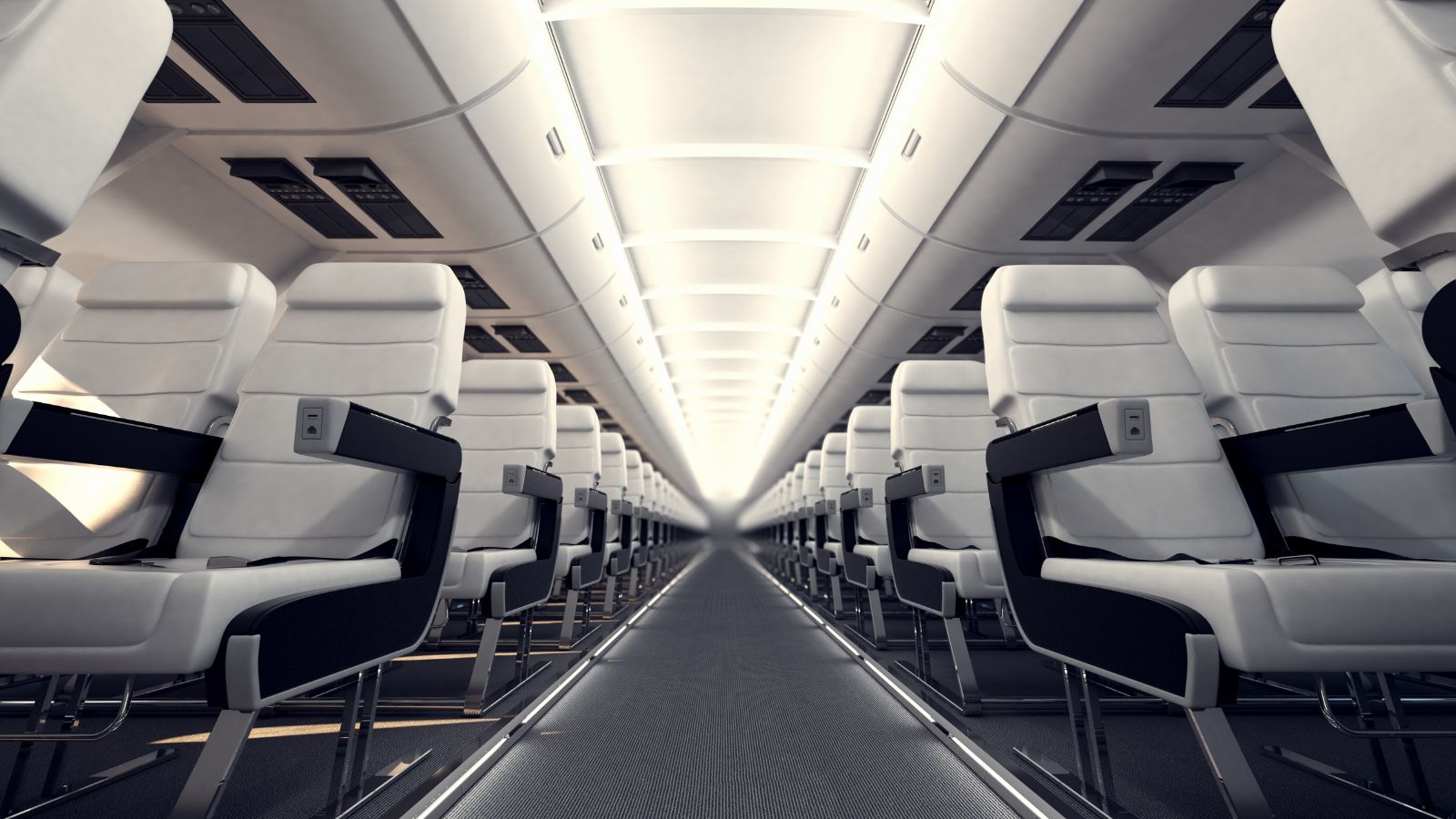
1. Paying for Seat Assignments
Families often pay extra to ensure they sit together during flights, especially when traveling with children. However, most airlines have unofficial policies to seat families together, particularly if kids are under 16. Unless you're aiming for specific upgrades or seats with extra advantages, spending on seat assignments is not really necessary.

2. Car Rental Costs
Renting a car can be quite costly, varying significantly based on the country you're visiting and the type of car you choose. While having a rental offers convenience, sometimes opting for public transportation could be a more budget-friendly choice. It's worth considering the overall expenses and convenience of using a rental car versus other transportation options.

3. Car Rental Insurance
When renting a car, many travelers opt for additional insurance provided by the rental company to ensure peace of mind. However, this insurance can substantially increase the total cost of your rental, which may later regret. Before purchasing this add-on insurance, it's advisable to check if your existing car insurance policy covers rental cars.

4. Luxury Hotels
Choosing to stay at a luxurious, five-star hotel can be enticing, especially when visiting new and exotic destinations. While these hotels offer exceptional service and amenities, the high cost might not always justify the experience, particularly if you plan to spend more time exploring the destination than staying in your hotel room. Often, more reasonably priced accommodations such as Airbnb can offer comfort and amenities that are just as good, if not better, than those in high-end hotels.

5. Expensive Roaming Fees
Staying connected while traveling is essential for many people, but using your regular phone plan abroad can lead to expensive roaming charges. Instead, opting for local SIM cards or travel eSIMs can be a cost-effective solution. These options allow you to stay connected without incurring hefty roaming fees.

6. Upgrading for Anything Unseen at a Hotel
It's common for hotel bookings to offer add-ons like Wi-Fi or drink packages that you can upgrade to without actually seeing them. So, take time to read through all the details before making your reservation.
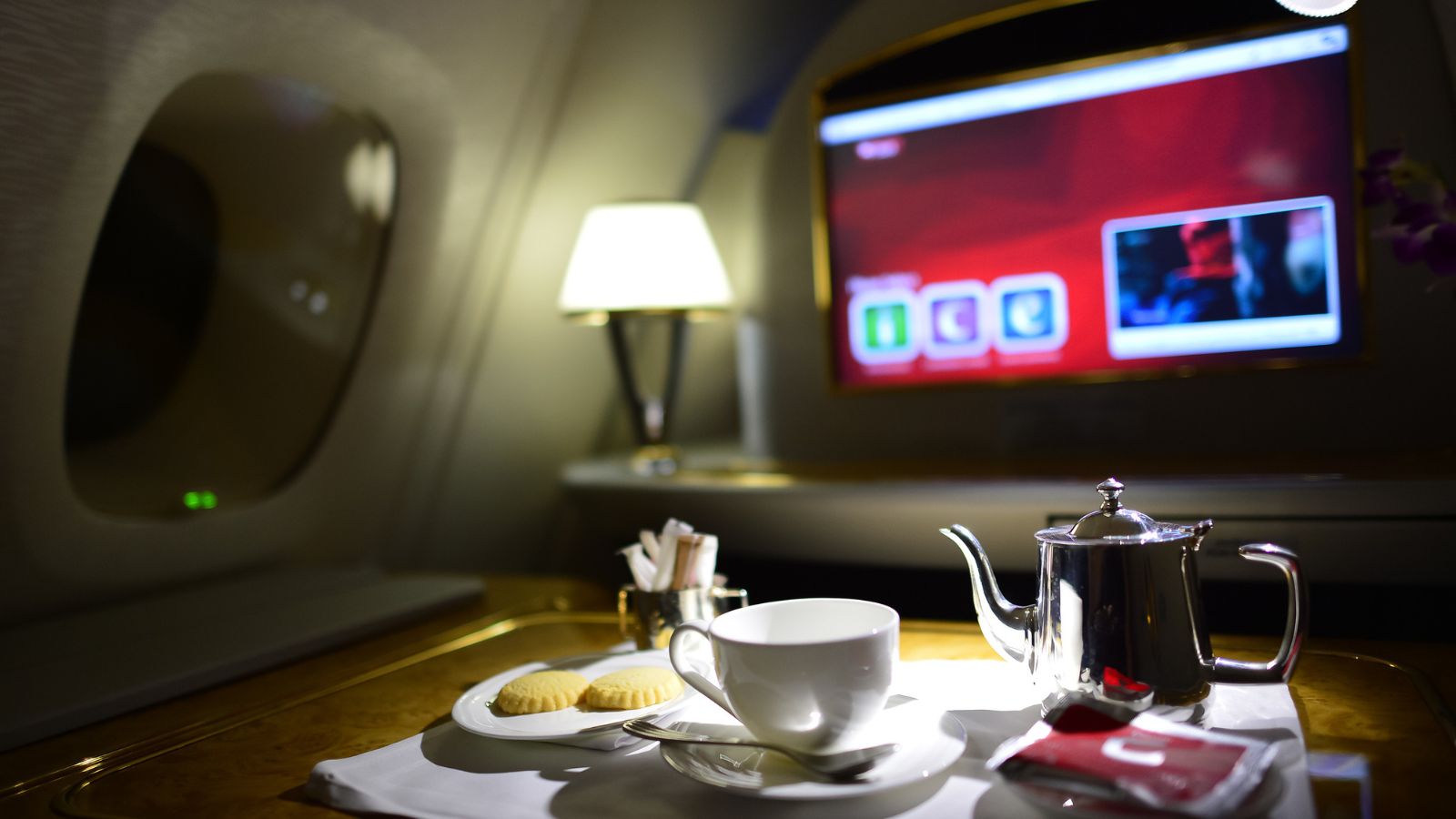
7. Flying First Class
While flying first class might seem luxurious, there are potential drawbacks, which include high costs that may not be worth it. Paying a hefty amount for a first-class ticket might only get you a slightly larger seat, not significantly different from an economy seat that costs much less. Moreover, flight delays or cancellations cannot be avoided even if you’re traveling first class.

8. Card Transactions
Using ATMs abroad often incurs fees, which can be frustrating. However, there are ways to avoid these charges. Switching to a bank that waives foreign transaction fees or opting for a travel-specific card with no foreign transaction fees can save you money. Additionally, you may seek cards that don't charge for remote transactions.

9. Membership Airfare Lounges
Airport lounge memberships offer pre-flight relaxation with perks like complimentary drinks and Wi-Fi. But if you're an occasional traveler, the annual fees for lounge access might not be worth it. Fortunately, many airports provide ample seating and amenities in their terminals, making lounge memberships unnecessary for infrequent flyers.
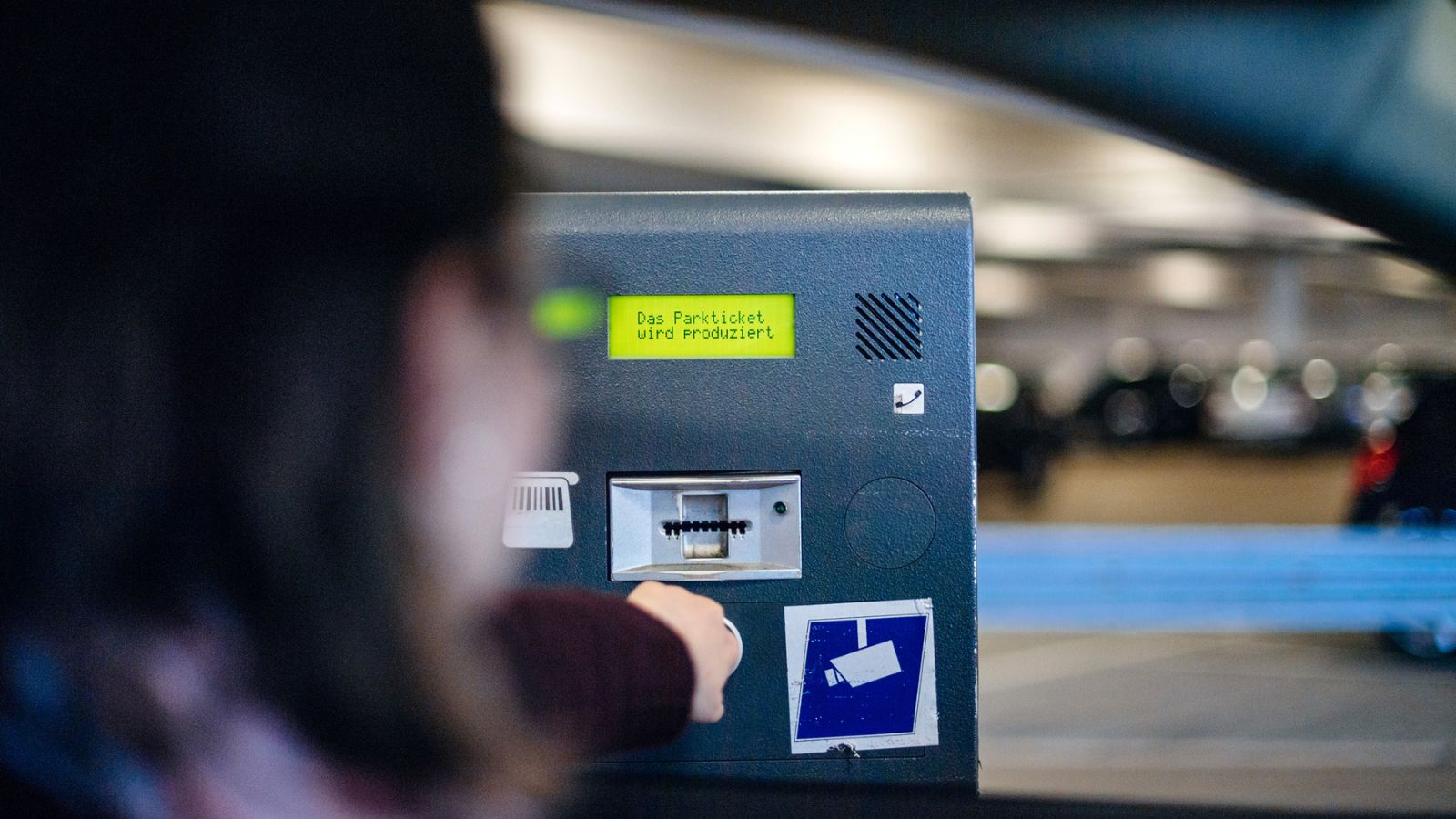
10. Airport Parking Fees
While airport parking might seem convenient, there are potential pitfalls, particularly the high costs. Ensure you're aware of the terms and dates, as some parking services might charge for additional days if your car stays beyond your intended period. Reading the fine print and being mindful of your parking duration can save you from unexpected extra charges.
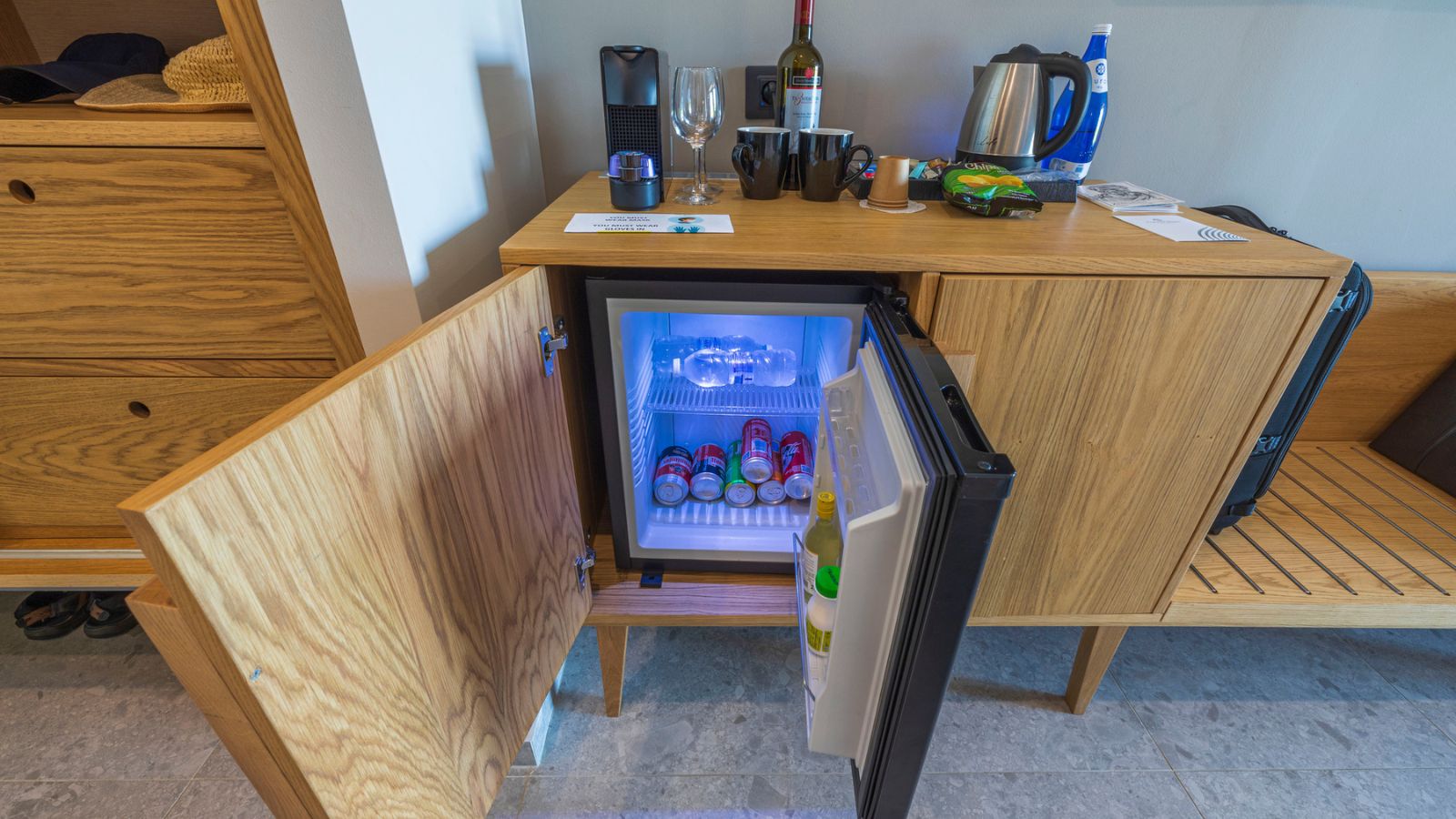
11. Spending at Minibars in Hotels
Minibars in hotels tend to be significantly overpriced. It's recommended to avoid them altogether because you can typically find similar items at local stores for much cheaper prices. Save money by purchasing what you need from nearby stores rather than indulging in the convenience of the minibar.

12. Currency Conversion Fees
Converting currency often involves hidden fees that travelers might not be aware of. Whether you're paying with cards or converting cash, these fees can add up. It's essential to understand the different ways you might be charged for currency conversion, as these fees can be somewhat invisible.

13. Pet Care fees
When leaving pets at home, the cost of their care can be a concern. Kennels can be expensive, and relying on friends or family might not always be an option for most people. Opting for house-sitting arrangements can provide free pet care at home while also potentially securing free accommodation abroad. Entrusting your pets to caring house-sitters during your travels can be a cost-effective alternative to professional pet care services.

14. Tour Guides
Guided tours vary in cost, and some might be more expensive than necessary. Researching tour options and costs in the destination area beforehand can help in finding more affordable options. In many places, booking tours upon arrival or through platforms like WithLocals can offer cheaper alternatives. Free walking tours, where guides work for tips, are another budget-friendly way to explore.

15. Souvenir Purchases
Souvenirs can be a lovely way to remember a trip, but it's essential to be cautious. Items marketed as "local" might actually be mass-produced elsewhere and sold at inflated prices. Exploring multiple shops and looking for unique items not found everywhere can help avoid overpaying for generic souvenirs.

50 Super Simple Side Hustle Ideas
50 Super Simple Side Hustle Ideas (& How to Make Them Work)

10 Frugal Lessons I Learned From Being Flat Out Broke

How To Make Money Without a Job

Creative Ways To Make Money

20 Easy Ways to Raise A Credit Score Fast
Read More: 20 Easy Ways to Raise A Credit Score Fast

Frugal Living Tips: The Essential Guide To Start Saving Money
More for You
Top 20 ‘rudest’ cities in America – is yours on the list?
The 10 Healthiest Types of Alcohol to Drink, According to a Registered Dietitian
Huge Impact Crater Discovered in America Is 3X the Size of the Grand Canyon
Missing World War II Plane Discovered After Eight Decade Search
Leaks about Joe Biden are coming fast and furious
The Retro 3-Ingredient Cookie Recipe Redditors Are Calling "So Good" and "Perfect"
UFL Blames Caitlin Clark For League’s Poor Attendance Numbers
All the Show-Stopping Red Carpet Looks From the 2024 BET Awards
13 Fast Food Chains That Are Totally Overpriced
Supreme Court rules in favor of North Dakota truck stop in blow to federal regulations
Beloved Discount Retailer Will Shutter All Remaining Locations After 70 Years
Here's how much the average American has in their 401(k) — in their 40s, 50s, 60s and 70s. How do you compare?
What Was the Last New Vehicle with a Pushrod Four-Cylinder Sold in USA?
10 Mistakes Everyone Makes With Blueberries
‘Unforgettable’ night as Taylor Swift opens sold-out Eras Tour shows in Dublin
Why Do Dogs Eat Grass? 7 Common Reasons—and How to Stop It
Can't hear TV dialogue? Changing these 3 settings can make a big difference
Donald Trump Rally Provides Potential Running Mate Clue
Supreme Court Chief Justice John Roberts Takes Back Control
Jayson Tatum Just Signed The Richest Contract In NBA History, But He Can’t Spend Any Of It Due To A Deal With His Mom
An official website of the United States Government
- Kreyòl ayisyen
- Search Toggle search Search Include Historical Content - Any - No Include Historical Content - Any - No Search
- Menu Toggle menu
- INFORMATION FOR…
- Individuals
- Business & Self Employed
- Charities and Nonprofits
- International Taxpayers
- Federal State and Local Governments
- Indian Tribal Governments
- Tax Exempt Bonds
- FILING FOR INDIVIDUALS
- How to File
- When to File
- Where to File
- Update Your Information
- Get Your Tax Record
- Apply for an Employer ID Number (EIN)
- Check Your Amended Return Status
- Get an Identity Protection PIN (IP PIN)
- File Your Taxes for Free
- Bank Account (Direct Pay)
- Payment Plan (Installment Agreement)
- Electronic Federal Tax Payment System (EFTPS)
- Your Online Account
- Tax Withholding Estimator
- Estimated Taxes
- Where's My Refund
- What to Expect
- Direct Deposit
- Reduced Refunds
- Amend Return
Credits & Deductions
- INFORMATION FOR...
- Businesses & Self-Employed
- Earned Income Credit (EITC)
- Child Tax Credit
- Clean Energy and Vehicle Credits
- Standard Deduction
- Retirement Plans
Forms & Instructions
- POPULAR FORMS & INSTRUCTIONS
- Form 1040 Instructions
- Form 4506-T
- POPULAR FOR TAX PROS
- Form 1040-X
- Circular 230
Here’s what taxpayers need to know about business related travel deductions
More in news.
- Topics in the news
- News releases
- Multimedia center
- Tax relief in disaster situations
- Inflation Reduction Act
- Taxpayer First Act
- Tax scams and consumer alerts
- The tax gap
- Fact sheets
- IRS Tax Tips
- e-News subscriptions
- IRS guidance
- Media contacts
- IRS statements and announcements
IRS Tax Tip 2022-104, July 11, 2022
Business travel can be costly. Hotel bills, airfare or train tickets, cab fare, public transportation – it can all add up fast. The good news is business travelers may be able to off-set some of those costs by claiming business travel deductions when they file their taxes.
Here are some details about these valuable deductions that all business travelers should know.
Business travel deductions are available when employees must travel away from their tax home or main place of work for business reasons. The travel period must be substantially longer than an ordinary day's work and a need for sleep or rest to meet the demands the work while away.
Travel expenses must be ordinary and necessary. They can't be lavish, extravagant or for personal purposes.
Employers can deduct travel expenses paid or incurred during a temporary work assignment if the assignment length does not exceed one year.
Travel expenses for conventions are deductible if attendance benefits the business and there are special rules for conventions held outside North America .
Deductible travel expenses while away from home include the costs of:
- Travel by airplane, train, bus or car between your home and your business destination.
- Fares for taxis or other types of transportation between an airport or train station to a hotel, from a hotel to a work location.
- Shipping of baggage and sample or display material between regular and temporary work locations.
- Using a personally owned car for business which can include an increase in mileage rates .
- Lodging and non-entertainment-related meals .
- Dry cleaning and laundry.
- Business calls and communication.
- Tips paid for services related to any of these expenses.
- Other similar ordinary and necessary expenses related to the business travel.
Self-employed or farmers with travel deductions
- Those who are self-employed can deduct travel expenses on Schedule C (Form 1040), Profit or Loss From Business (Sole Proprietorship) .
- Farmers can use Schedule F (Form 1040), Profit or Loss From Farming .
Travel deductions for the National Guard or military reserves
National Guard or military reserve servicemembers can claim a deduction for unreimbursed travel expenses paid during the performance of their duty .
Recordkeeping
Well-organized records make it easier to prepare a tax return. Keep records, such as receipts, canceled checks, and other documents that support a deduction.
More information:
- Publication 463, Travel, Gift, and Car Expenses
- IRS updates per diem guidance for business travelers and their employers
Subscribe to IRS Tax Tips
NDP MP who's rarely on Parliament Hill billed taxpayers for travel with family over Christmas
Niki ashton billed taxpayers for $17k trip to meet 'stakeholders' over the christmas break.

Social Sharing
An NDP MP who frequently joins parliamentary proceedings remotely from her riding billed the House of Commons for a trip she took to reportedly meet with "stakeholders" over the Christmas holidays in Quebec — travel that included bringing her husband and kids along at taxpayers' expense.
Parliamentary travel records indicate NDP MP Niki Ashton was only in Ottawa on one occasion for four days during the fall 2022 sitting.
But on Dec. 21 of that year, Ashton flew from Thompson, Man. to Ottawa — five days after the House of Commons had already risen for its Christmas break.
Ashton's partner Bruce Moncur, a former NDP nomination candidate, and their two children also made the trip with the MP to the nation's capital.
Then, on Christmas Day, 2022, the family of four travelled to Quebec City. Ashton billed the Commons for some of the expenses they incurred along the way.
Social media posts show Moncur and the children took in some of Quebec City's winter attractions, including an ice slide and snow tubing at Village Vacances Valcartier outside the city centre.
Ashton is also seen in those posts skating with her children and visiting the city's German Christmas Market.
In an Instagram post, Ashton thanked "progressive activists" for sharing their "inspiring work."
- Loophole leaves taxpayers picking up tab for MP travel
- House of Commons committee should close loophole on MPs' travel, Liberal MP says
The trip cost taxpayers $17,641.12, including $13,619.90 for airfare and other transportation, $2,508.39 for accommodations and $1,512.83 for meals and other incidentals, according to Commons records.
Ashton justified billing taxpayers for the trip by claiming she was going to Quebec City to "attend meetings with stakeholders about business of the House" over the holidays, according to House of Commons travel records.
Ashton's office referred inquiries about the travel to a party spokesperson.
Reached by phone Wednesday, an NDP spokesperson said Ashton was in the provincial capital "to discuss language priorities" because she's the party's critic for official languages and needed to "find out things she needs to prioritize."
Ashton also "met with a union person," the spokesperson said.
On Dec. 30, 2022, Ashton, Moncur and their children then travelled to Montreal. Ashton again cited "meetings with stakeholders" as the reason for claiming expenses.

NDP MP questioned about Quebec trip with family paid by taxpayers
The NDP spokesperson said Ashton was again engaging with people about "linguistic issues" while in the province's biggest city.
The family returned to Ottawa on New Year's Eve before flying home to Thompson early in the new year.
At a press conference on another matter on Thursday, Ashton was asked repeatedly who she met with while in Quebec.
Ashton would only say that it was "various people" who are "connected to the issue of French language, French culture preservation." She said she wanted to get feedback on an overhaul of the Official Languages Act from unnamed groups.
Asked if she regretted the Christmas season trip, Ashton said the travel was approved by Commons administration and her job involves "travel and meeting with stakeholders, engaging with stakeholders."

The NDP spokesperson said Ashton "paid out of pocket" for some additional expenses incurred on statutory holidays like Christmas Day.
The spokesperson added that some of the trip expenses were related to the family staying at a hotel while in Ottawa — and not at her second residence in the city — because her apartment was being treated for bed bugs.
The spokesperson said Ashton is in Ottawa less often than some of her colleagues because she's the mother of two young children and participating virtually — which is permissible under the rules — is a better fit for her schedule.
In a media statement sent to CBC News, Alana Cahill, the party's director of communications, said Ashton is "a strong representative for the people of northern Manitoba" who "sometimes travels to other parts of the country in order to meet with experts and advocates on the infrastructure challenges facing northern, rural communities and for work related to her critic portfolios."
"House of Commons rules allow members of Parliament to travel for parliamentary business. Niki followed all the rules and the House of Commons approved her travel expenses," Cahill added.
'It smells really fishy' - CTF director
Franco Terrazzano is the federal director of the Canadian Taxpayers Federation, a group that advocates for lower taxes and more accountable government. He said Ashton's travel "looks really bad and it smells really fishy."
"If Ashton doesn't want Canadians to think that she billed taxpayers so she could take a vacation to Quebec over the holidays, then she better have a very good explanation, a very concrete explanation as to what value, if any, taxpayers actually got from this trip," Terrazzano told CBC News.
He said "ordinary Canadians" are struggling with the cost of living and they get frustrated seeing MPs charge for substantial travel expenses.
"Did taxpayers get more than $17,000 in value out of this trip? Maybe she could have saved taxpayers a whole bunch of money by picking up the phone instead — especially if Ashton is already Zooming into the parliamentary procedures," he said.
Terrazzano said there needs to be greater oversight of MP travel expenses and he's calling for some sort of "review" of what's allowable under the rules to prevent abuse.
Nearly $10,000 for a trip to Windsor
On another trip in May 2023, Ashton travelled — again with Moncur and her kids — to Windsor, Ont. where Moncur grew up and went to school and university.
The six-day trip to Windsor happened as Ashton was travelling infrequently to Ottawa for parliamentary proceedings.
Travel records suggest she was physically in the nation's capital for fewer than 30 days — including some weekends — over the first six months of 2023.
The Commons sat for 70 weekdays over the same time period.
Unlike senators, MPs can participate in debate and committee meetings virtually under pandemic-era rules that were made permanent in 2023.
The Windsor trip cost taxpayers $9,748.03 — all of it for airfare. Ashton did not charge for any accommodations or incidentals.

Ashton flew there to "attend meetings about constituency issues," according to the Commons travel records.
The NDP spokesperson said Ashton was in Windsor to meet with people associated with a "soccer recreation centre," to learn about "federal funding to create some soccer opportunities in northern Manitoba for Indigenous folks."
Ashton has in the past encouraged the federal government and FIFA, soccer's governing body, to invest more money so that more Indigenous youth can play the game.
While in Windsor, Ashton also travelled across the border to Detroit to meet with Democratic Congresswoman Rashida Talib, the NDP spokesperson said.
Rules allow MPs to take family on some official trips
The Commons' travel system allocates a certain number of points to an MP each year for travel.
But each trip must have "a specific purpose of travel and be for the purpose of the fulfilment of the Member's parliamentary functions," the Commons rules say.
The rules loosely define "parliamentary functions" as activities "relating to the proceedings and work of the House of Commons and activities undertaken in representing his or her constituency or constituents."
The rules do stipulate that "parliamentary functions" do not include "activities related to the private interests of a member or a member's immediate family."
The points can be used by a member to travel between Ottawa and their constituency, for travel within their constituency and for travel from Ottawa or the constituency to their provincial or territorial capital.
Some of the points can also be used for what the Commons calls "special trips" — other trips within Canada.
An MP can allocate some of their points to cover the travel costs of a "designated traveller" chosen by them — typically a spouse. An MP's dependents are also eligible to have some of their travel covered.
The rules stipulate that designated travellers and dependents can use points to "reunite" with an MP at their Ottawa residence or "at another location where the member is carrying out parliamentary functions."
Under the rules, MPs, designated travellers and dependents can travel in business class if the flight is more than two hours long.
Terrazzano said MPs should think "about what their constituents would say" before taking big-ticket trips. He also said the Commons should consider tightening the rules on when MPs can be accompanied by their families on subsidized trips.
Asked about Ashton's expenses, NDP Leader Jagmeet Singh said MPs have to follow strict rules in submitting their expenses to the House of Commons.
"I expect all my MPs and all MPs in the House to follow those rules and submit claims," Singh told reporters on Thursday. "Those claims were submitted and approved."
Last month, CBC News reported on a loophole in the rules that allows MPs and senators to charge Parliament for travel to party conventions.
Under the Commons rules, MPs can claim expenses related to national caucus meetings, which are considered part of their parliamentary duties.
Conservative MPs billed the House of Commons $426,283 to attend a caucus meeting associated with the party's policy convention in Quebec City in September 2023, including $331,699 for travel, $71,408 for accommodations and $21,053 for meals and incidentals.
NDP MPs also billed Parliament $83,087 to send MPs and a dozen of their employees to a caucus meeting associated with the party's convention in Hamilton in October 2023, according to a CBC News review of travel claims.
Prime Minister Justin Trudeau routinely faces criticism over his travel.
Trudeau's 10-day vacation with his family at Prospect Estate near Ocho Rios in Jamaica cost taxpayers $230,442. Most of that was for security-related costs, which MPs don't have.
ABOUT THE AUTHOR

Senior reporter
J.P. Tasker is a journalist in CBC's parliamentary bureau who reports for digital, radio and television. He is also a regular panellist on CBC News Network's Power & Politics. He covers the Conservative Party, Canada-U.S. relations, Crown-Indigenous affairs, climate change, health policy and the Senate. You can send story ideas and tips to J.P. at [email protected]
- Follow J.P. on X
Related Stories
Add some “good” to your morning and evening.
Your weekly guide to what you need to know about federal politics and the minority Liberal government. Get the latest news and sharp analysis delivered to your inbox every Sunday morning.
This site is protected by reCAPTCHA and the Google Privacy Policy and Google Terms of Service apply.

2024 Elections
The Rematch
The Trump and Biden Economies by the Numbers
Approaching the November presidential rematch between incumbent President Joe Biden, a Democrat, and his predecessor Donald Trump, a Republican, the two candidates are already drawing distinctions over their economic records. And there are surely fundamental differences between them.
But any broad comparison is complicated by the huge disruptions at the onset of the COVID-19 pandemic in early 2020, which triggered two of the most extreme quarters of economic contraction and growth in U.S. history, followed by a bout of inflation reminiscent of the 1970s.
Should Trump be blamed for a collapse in output that rivaled the Great Depression? Should Biden get credit for millions of jobs created in 2021 that were largely a pandemic rebound? Below, a look at key measures of economic performance - from growth overall to the labor market, from tariffs to tax collections - that illustrate the contrasts and similarities between the economies under both.
Drawing of robots working in factory
Overall Growth
The broadest measure of an economy’s performance is annualized growth in gross domestic product, a figure that counts every widget produced, every meal served, and every dollar spent by the government to measure changes to the country’s overall output.
There are reasonable debates about what it really means and how it is distributed, but GDP is one of the main economic scorecards: Generally speaking, the faster it grows, the healthier the economy. As with many of the broader statistics, what may be more interesting is how similar the Trump and Biden economies look.
Quarterly growth during Trump’s first three years, up to the pandemic, and Biden’s term beginning in 2021, compounded at an almost identical rate that annualizes to around 2.7%. Excluding Biden’s first year, arguably still influenced by the pandemic, it was a slower 2.3%.
The Biden economy rode a pandemic-era consumer spending boom; Trump’s economy saw slightly larger average contributions from business investment.
Chart showing change in gross domestic product and consumer spending and private business investment as a share of GDP
Trump made tax cuts a centerpiece of his administration. Biden pushed through some modest tax increases and has proposed even more aggressive actions. Yet federal government collections have been mushrooming in spite of Trump’s tax reductions and beyond the tax increases under the current administration.
Even after adjusting for inflation federal tax collections have been rising.
Against expectations, the pandemic era became one of fast wage hikes and high corporate profits, linked at least to some degree to federal household and business support programs, as well as to high inflation. Tax receipts followed.
Chart showing tax receipts
Chart showing receipts on personal and corporate income tax
The flipside to GDP is Gross Domestic Income , an estimate of what people and companies earn in return for inventing, producing and selling all those widgets and services. How it should get distributed is a perennial debate in U.S. politics.
Trump may have stocked his cabinet with Wall Street allies and boasted of tax cuts for business, but companies took a larger share of GDI under Biden; the share for workers stayed fairly constant.
drawing of shoppers at shopping mall
Prices and Products
As the health crisis eased, what had been a broad focus on keeping families and businesses financially intact shifted to the emerging problem of inflation , which spiked to levels not seen since the 1980s. Republicans and Democrats will spar mightily over the reasons, and over the significance of its decline alongside U.S. Federal Reserve rate hikes.
Just as many economists agree the pandemic response skirted a potential economic catastrophe – a huge benefit – inflation to some degree represented the follow-on cost.
Prices increased fast for basic goods, posing a particular hardship for lower-income families.
Chart showing overall inflation and inflation for food and shelter
It may take years to understand how the pandemic changed the economy, but it was a volatile time for both good and bad reasons. On the downside, inflation erupted, seen as a combination of snarled supply chains and record federal deficit spending that began under Trump and continued under Biden, fuelling consumer demand.
On the plus side: Business starts jumped and were sustained through Biden’s term. At first it was considered a response to the health crisis, motivated by people wanting more control of their environment and their earnings. But the change has persisted to the point some economists see a revival of entrepreneurialism.
Chart showing new business starts
Worried about a depression-style collapse, Congress approved trillions of dollars in payments to households, pumping up bank accounts with disposable income that consumers used freely first to buy goods and then later on “revenge” spending on services like eating out and travel that were unavailable during the pandemic. Over time inflation caught up and eroded some of that purchasing power.
Chart showing disposable income
One policy both Trump and Biden shared is the use of tariffs to curb U.S. trade with China, whether on a broad basis or applied to targeted goods, in the case of Biden, like electric vehicles. Alongside a broader rearrangement of global trade following the pandemic and the Russian war against Ukraine, the tariffs have lowered China’s direct share of U.S. imports. Mexico is now at the top.
Chart showing US trade with Mexico and China
Drawing of construction workers on a construction site
The Landscape for Workers
One thing the Trump and Biden economies shared is a strong labor market. The jobless rate was 3.6% at the end of 2019, before the pandemic; it has gone as low as 3.4% under Biden and until May had been below 4% for more than two years.
Regardless of who’s in the White House, and whether it is for demographic or other reasons, the U.S. seems to have slipped into a period of sustained demand for workers, with a pandemic rebound that surprised even the most seasoned economists.
Chart of unemployment rate including black and white unemployment rate
Filling jobs requires bodies, and for years after the 2007 to 2009 recession economists felt the U.S. labor force was forever scarred. There are demographic limits in an aging population. But economists are realizing that strong job markets, if they last long enough, do pull workers from the sidelines and into employment.
One key difference: Rising immigration under Biden allowed job growth to continue at a higher level than it might have otherwise, absent higher wages.
Chart showing labor force and native and non-native US workers
Wage pressure was a key feature of the pandemic economy, with its “Great Resignation” of workers. Amid a shuffling of occupations and tales of labor shortages, the strongest wage gains went to the lowest paid occupations.
Chart showing wage growth include the top and bottom 20 percent of earners
The U.S. economy is a big ship that’s hard to turn, but presidential decisions do matter. Biden ramped up antitrust enforcement, for example. Trump’s administration thought tax cuts would boost private investment, and economists feel it did at least in the short term. Biden, by contrast, has steered public investments to what are seen as strategic industries and infrastructure.
But counter to their positioning as polar opposites, they’ve both embraced big deficits, overseen historically low unemployment rates, imposed tariffs on Chinese goods, and seen stock markets hit record highs on their watch.
drawing of squirrel and dog
Monthly data current through May 2024; Disposable Income as of April 2024; Quarterly figures through Q1 2024; Wages as of March 2024
U.S. Bureau of Labor Statistics; U.S. Bureau of Economic Analysis; U.S. Census Bureau; U.S. Treasury Department, Federal Reserve Bank of St. Louis; Federal Reserve Bank of Atlanta

IMAGES
VIDEO
COMMENTS
You figure the deductible part of your air travel expenses by subtracting 7 / 18 of the round-trip airfare and other expenses you would have had in traveling directly between New York and Dublin ($1,250 × 7 / 18 = $486) from your total expenses in traveling from New York to Paris to Dublin and back to New York ($750 + $400 + $700 = $1,850).
To be able to claim all the possible travel deductions, your trip should require you to sleep somewhere that isn't your home. 2. You should be working regular hours. In general, that means eight hours a day of work-related activity. It's fine to take personal time in the evenings, and you can still take weekends off.
Business travel deductions are available when employees must travel away from their tax home or main place of work for business reasons. A taxpayer is traveling away from home if they are away for longer than an ordinary day's work and they need to sleep to meet the demands of their work while away. Travel expenses must be ordinary and ...
Travel expenses are costs associated with traveling for the purpose of conducting business-related activities. Travel expenses can generally be deducted by employees as non-reimbursed travel ...
Topic no. 511, Business travel expenses. Travel expenses are the ordinary and necessary expenses of traveling away from home for your business, profession, or job. You can't deduct expenses that are lavish or extravagant, or that are for personal purposes. You're traveling away from home if your duties require you to be away from the general ...
For self-employed travel expenses, you will list travel write-offs on Schedule C Form 1040. Businesses must claim travel expenses on Form 2106 and report them on Form 1040 or Form 1040-SR as an adjustment to their total income. While there's no annual travel deduction limit, the IRS scrutinizes higher write-offs.
Travel expenses are just one of many unexpected deductible costs that can reduce your tax bill. But with messy or incomplete financials, you can miss these tax saving expenses and end up with a bigger bill than necessary. Enter Bench, America's largest bookkeeping service. With a Bench subscription, your team of bookkeepers imports every ...
2. Pay with personal cards and submit expense claims. For many small to medium size businesses, this is the simpler option. Asking employees to pay business expenses from their personal account is pretty standard practice. Reimbursing expenses can be a time-consuming process for both Admin professionals and staff.
Adding up travel costs can differ a bit based on the taxpayer's preferences. For example, when it comes to accounting for travel expenses related to driving, you can use either the standard mileage rate (58.5 cents per mile for tax year 2022) or add up actual costs, such as gas, depreciation, insurance, etc.
Travel expenses are expenditures that an employee makes while traveling on company business. Company business can include conferences, exhibitions, business meetings, client and customer meetings, job fairs, training sessions, and sales calls, for example.
Some of the most common business expenses for travel you can deduct include: Direct travel: This can include expenses like plane, train and bus tickets or car expenses. If the tickets were free or a gift, you can't deduct them because the IRS considers their cost to be zero. Local transportation: These costs may be taxis or ride-hailing ...
If you're self-employed or own a business, you can deduct work-related travel expenses, including vehicles, airfare, lodging, and meals.The expenses must be ordinary and necessary. For vehicle expenses, you can choose between the standard mileage rate or the actual cost method where you track what you paid for gas and maintenance.. You can generally only claim 50% of the cost of your meals ...
Charges on Your Hotel Bill. The 50% Rule for Meals. The Cost of Bringing a Spouse, Friend or Employee. Using Per Diems To Calculate Employee Travel Costs. Combined Business/Personal Trips. International Business Travel. The Cost of a Cruise (Within Limits) Frequently Asked Questions (FAQs) Photo:
If traveling abroad, you must spend a minimum of 25% of your time conducting business to qualify as a business trip and claim travel expense deductions. If you conduct business for less than 25% of the time while on a trip, you can still deduct travel costs. This deduction must be proportional to the amount of time spent on business.
Foreign travel expenses are fully deductible if you spent 100 percent of your time abroad on business. However, if you engaged in any non-business activity, whether sightseeing or visiting old friend, you may have to make an allocation between deductible business expenses and non-deductible personal ones.
You can deduct business travel expenses when you are away from both your home and the location of your main place of business (tax home). Deductible expenses include transportation, baggage fees, car rentals, taxis and shuttles, lodging, tips, and fees. You can also deduct 50% of either the actual cost of meals or the standard meal allowance ...
A travel expense reimbursement policy is a document that outlines the rules and guidelines for reimbursing employees for business-related travel expenses. It includes details from pre-travel planning to settling reimbursable amounts. The policy specifies which travel expenses are eligible for reimbursement and which are not.
Add in the cost of airport transfers to the hotel or the cost of rental car for the trip. Once you estimate each of these four costs, total them up for a good estimate of travel flight costs. You would use the same process for train tickets and public transportation instead of flights and car rental/airport transfers.
Aside from travel expenses, you can even use it to split up expenses among roommates or just everyday purchases with friends. Cost: Free; Upgraded version is $2.99/month ($29.99/year) which includes receipt scanning, currency conversion and more. Download: Google Play Store or iTunes App Store.
Travel expenses, in a broad sense, refer to the costs associated with a trip taken for business, work, or investment purposes. These expenses can include transportation, lodging, meals, entertainment, and other incidental expenses. However, it's important to note that not all travel-related expenses are tax deductible.
The IRS defines it as "an expense incurred while away from home on business." This includes things like travel to and from meetings, conferences, and business-related events. It can also include expenses related to lodging, meals, and transportation. Costs that occur while you're traveling away from home for business purposes, such as airfare ...
Travel expenses include food, transport, accommodation, commute, and expenses for other services. The employee is responsible for maintaining receipts and other documents that reveal a particular expense they claim. After examination, the employer will reimburse the employee. Hence, they should be vigilant while requesting reimbursement for ...
Most comprehensive travel insurance plans provide coverage for trip cancellation, delay and interruption, medical expense, emergency medical evacuation and baggage loss.
Traveling can be an enriching experience, but costly travel expenses can lead to regret. These financial missteps can lead to stress and regret, detracting from the overall travel experience and ...
According to one source, traveling with a spouse considerably increases the cost of a minister's overseas travel because it involves the addition of a business class airline ticket and additional expenses on the ground. "It's an unnecessary and outrageous waste of money, certainly at a time like this," the source said.
Yet, PK has also struggled with keeping loan expenses in check as its net income decreased by 12% year-over-year for the first quarter of 2024. This came despite an increase in revenue and ...
Business travel deductions are available when employees must travel away from their tax home or main place of work for business reasons. The travel period must be substantially longer than an ordinary day's work and a need for sleep or rest to meet the demands the work while away. Travel expenses must be ordinary and necessary. They can't be ...
The trip cost taxpayers $17,641.12, including $13,619.90 for airfare and other transportation, $2,508.39 for accommodations and $1,512.83 for meals and other incidentals, according to Commons records.
Program fees, food and lodging will be covered for participants accepted into the program however travel expenses and other incidentals are not included. The Hoover Indigenous Student Seminar offers top college students and recent graduates an opportunity to engage with scholars and policy practitioners on the campus of Stanford University.
Approaching the November presidential rematch between incumbent President Joe Biden, a Democrat, and his predecessor Donald Trump, a Republican, the two candidates are already drawing distinctions ...